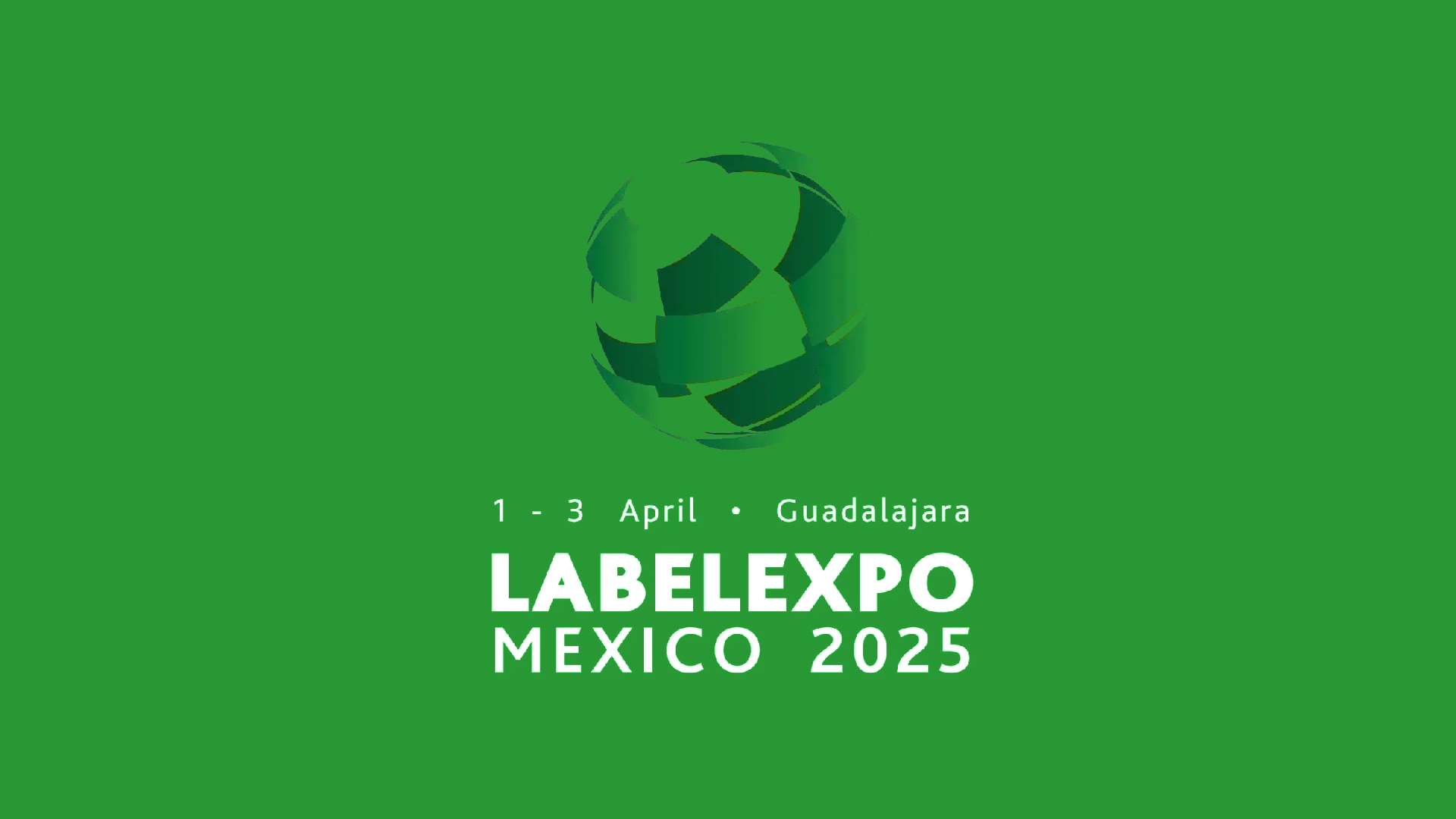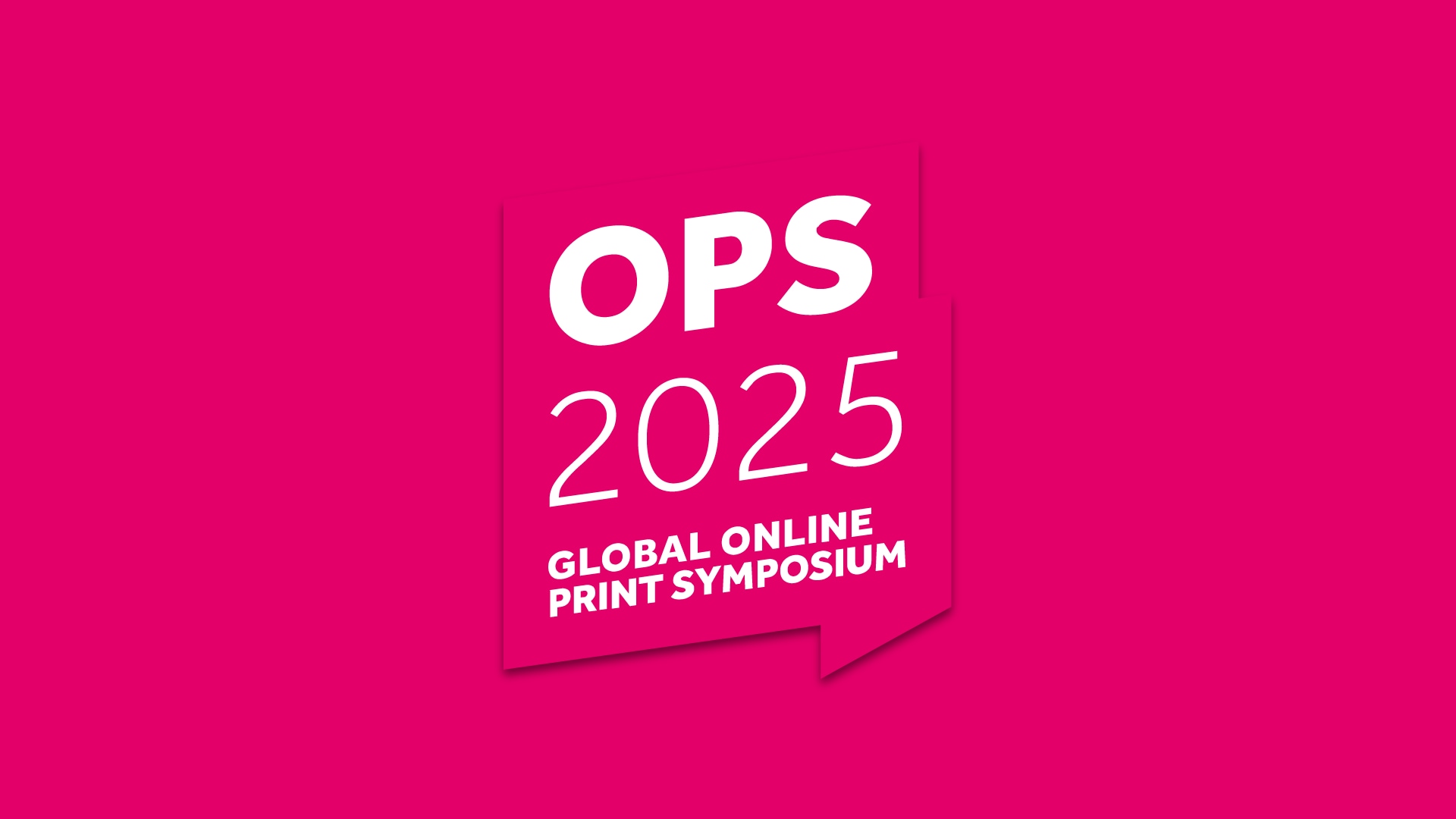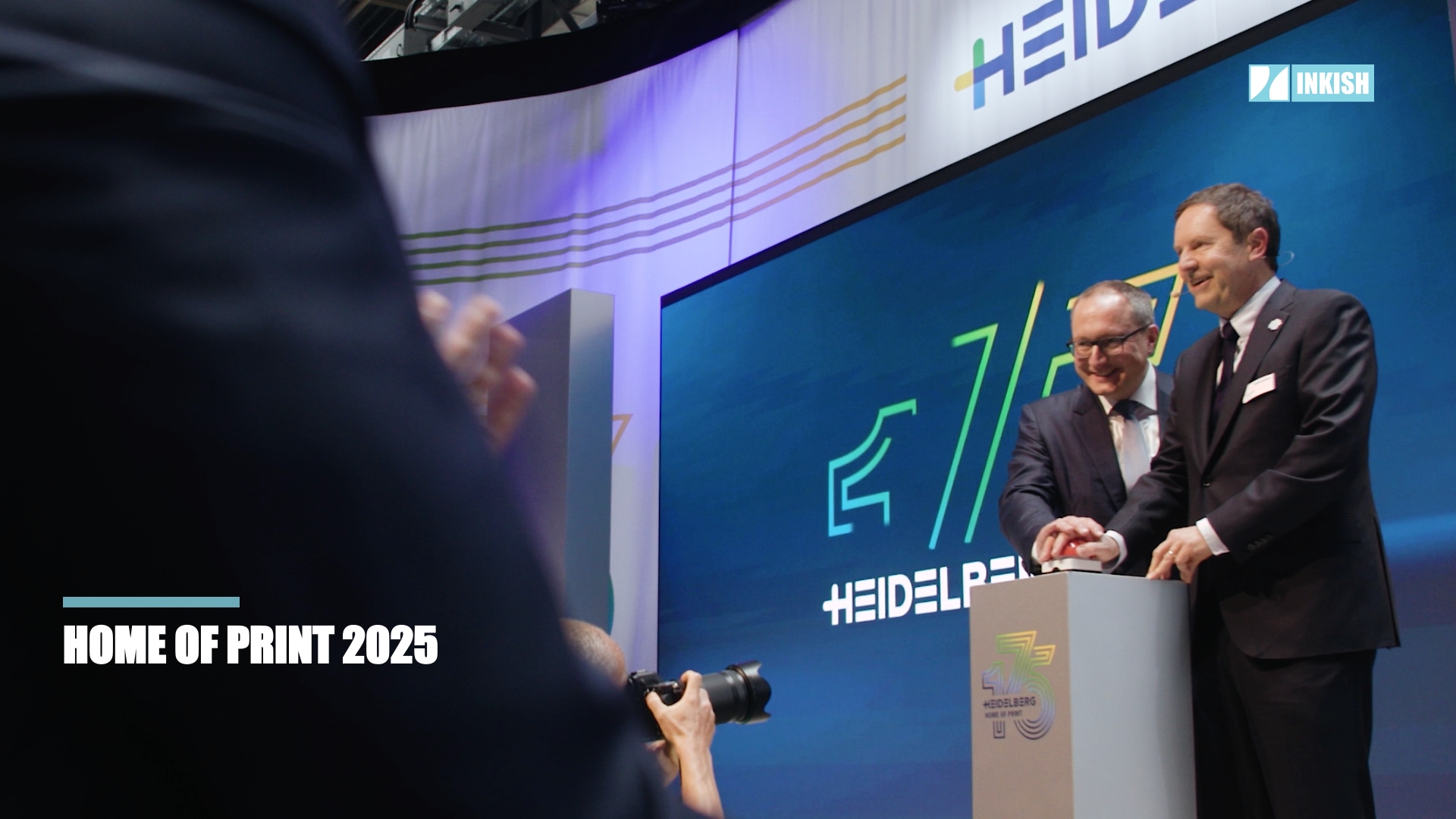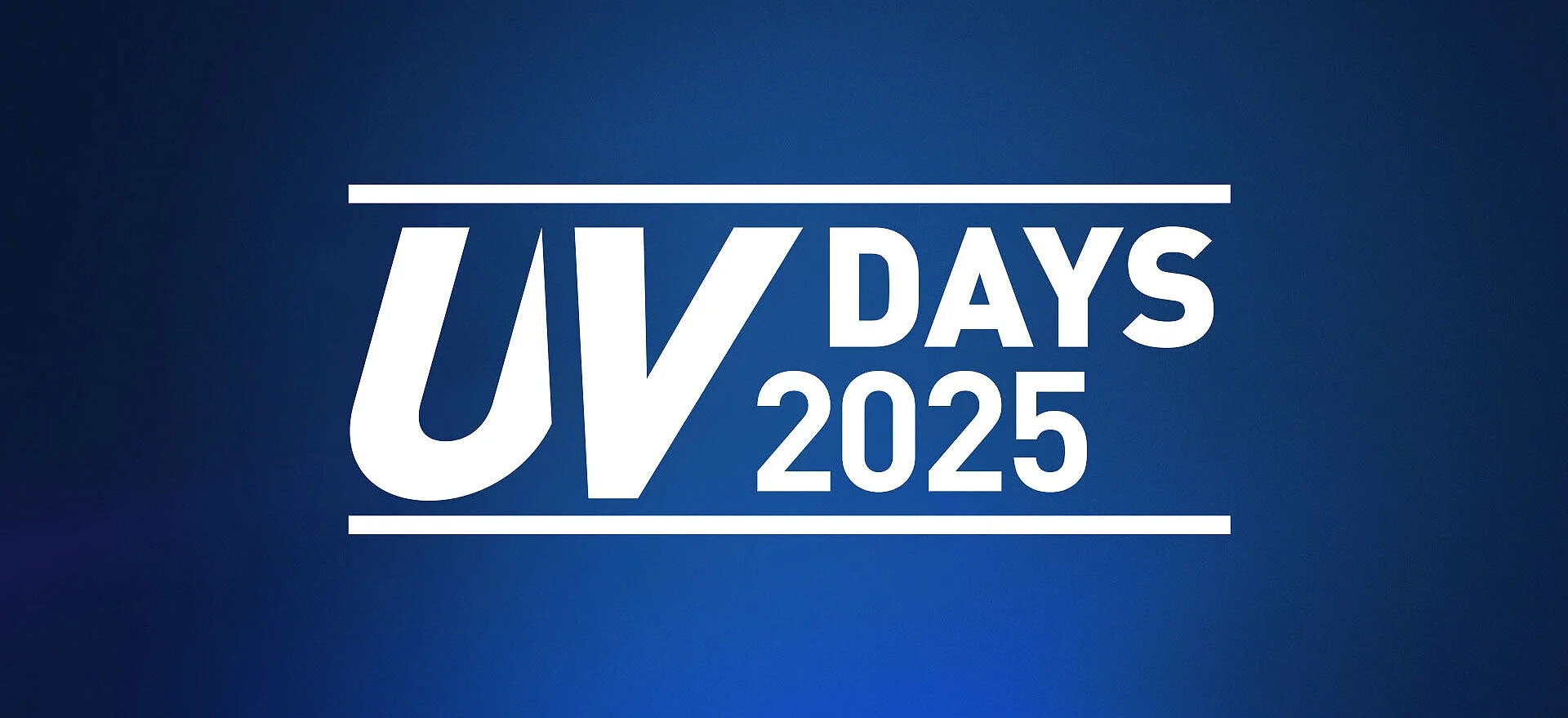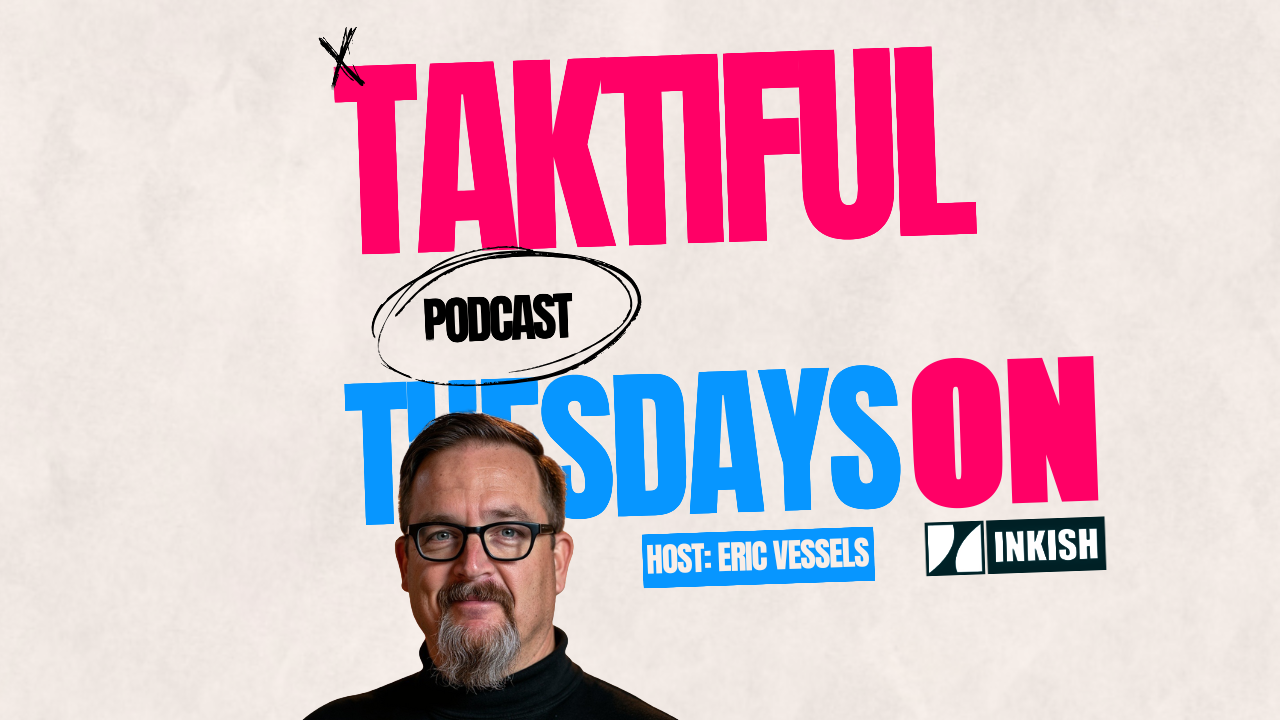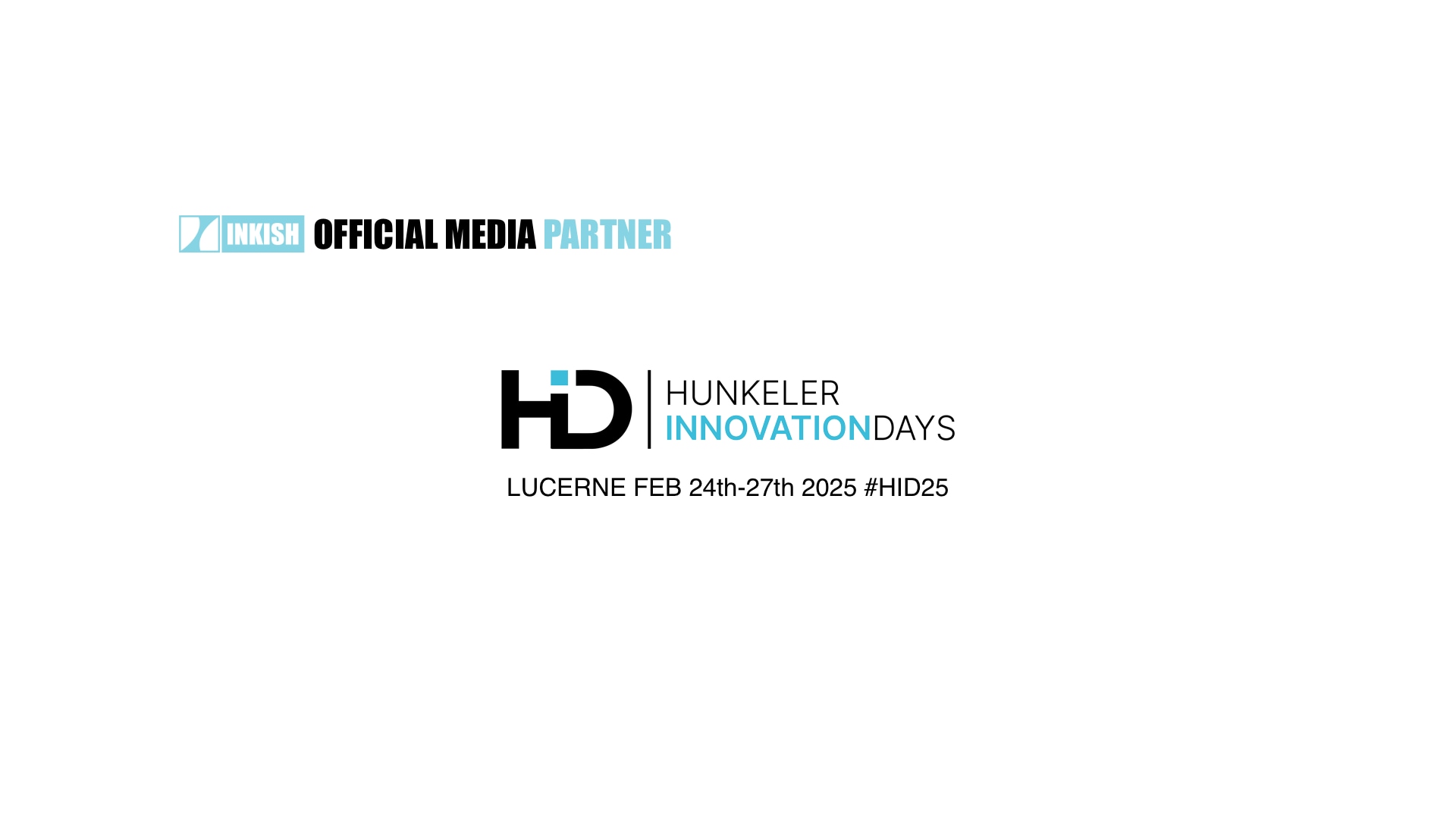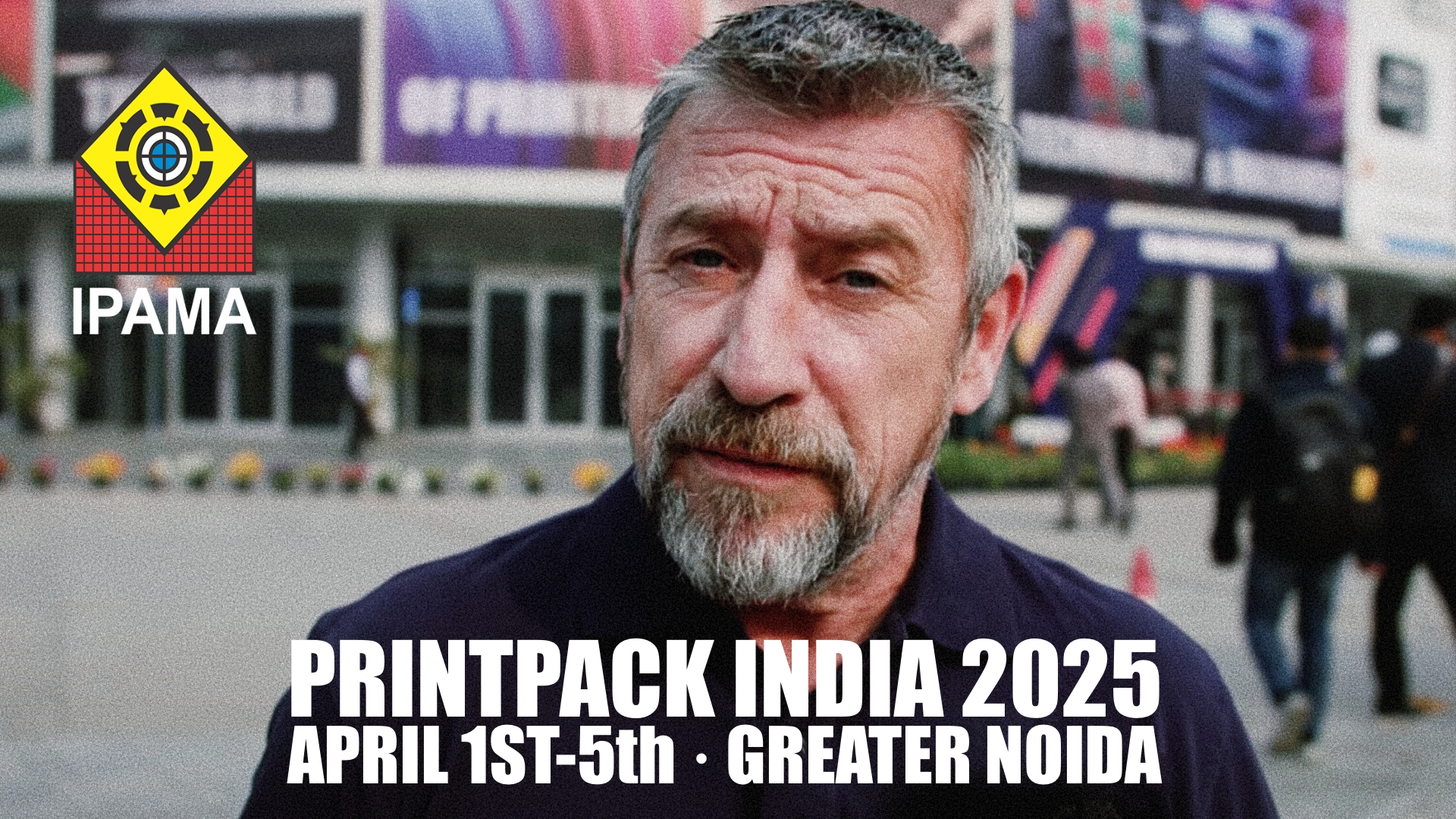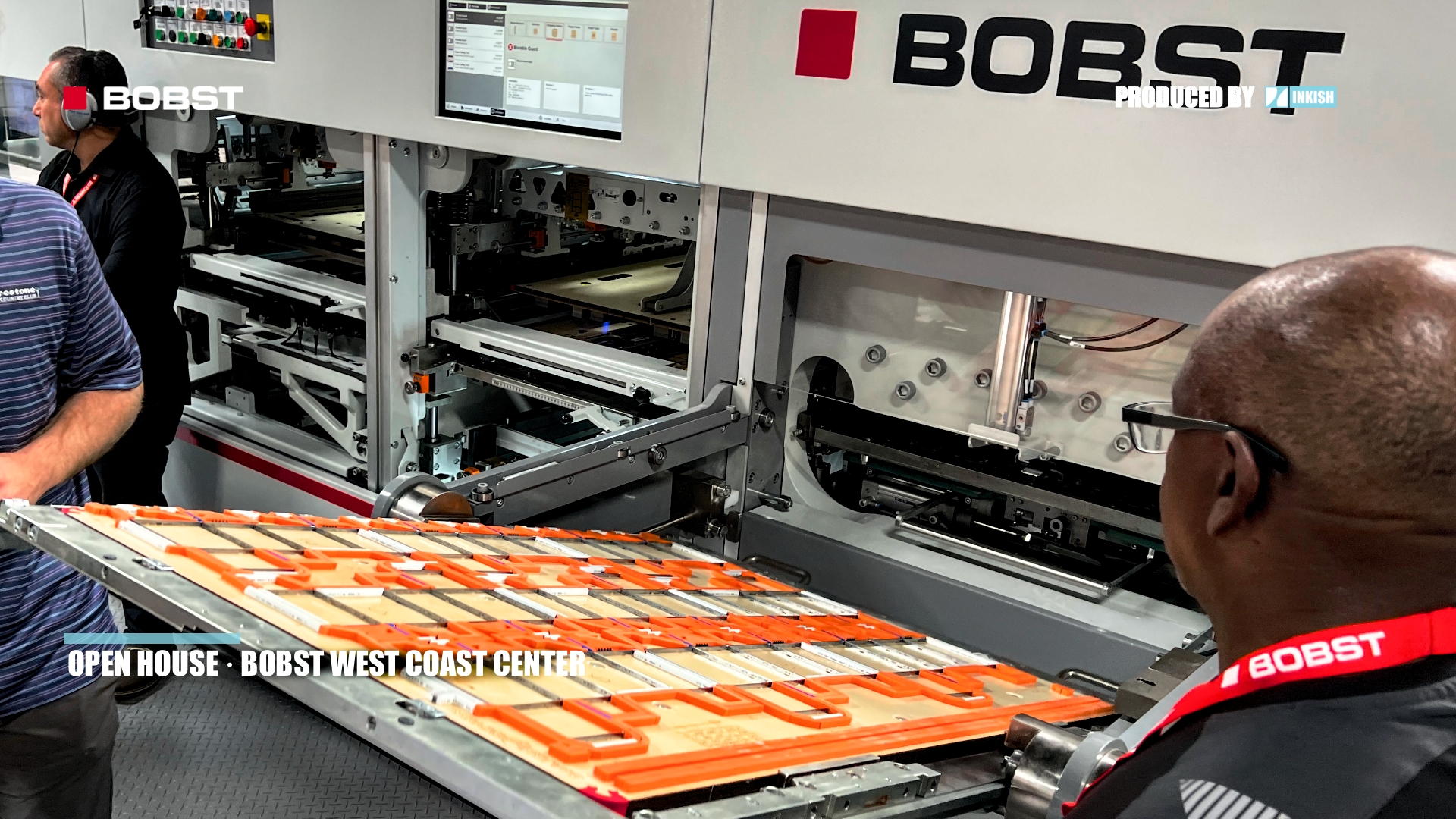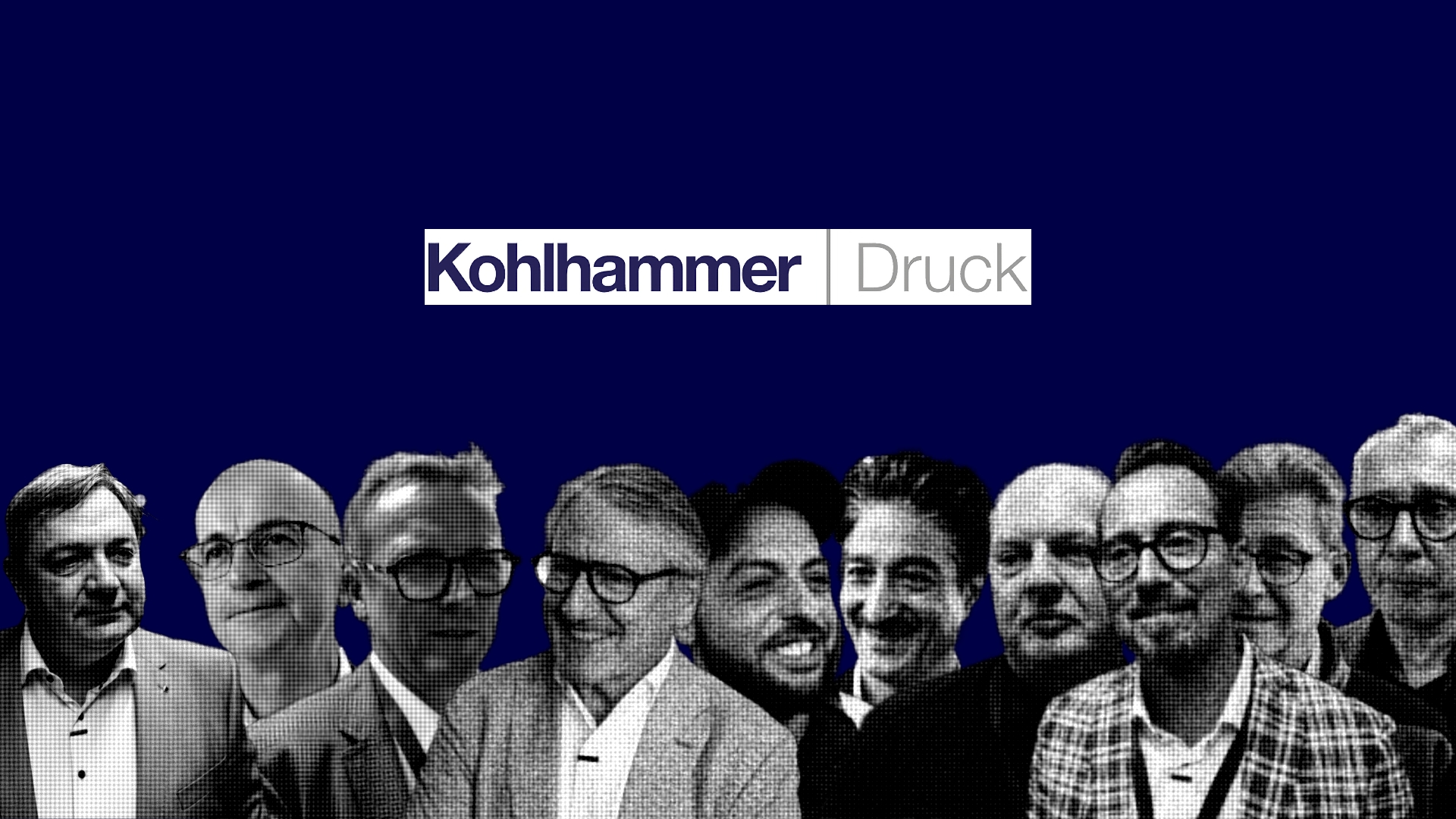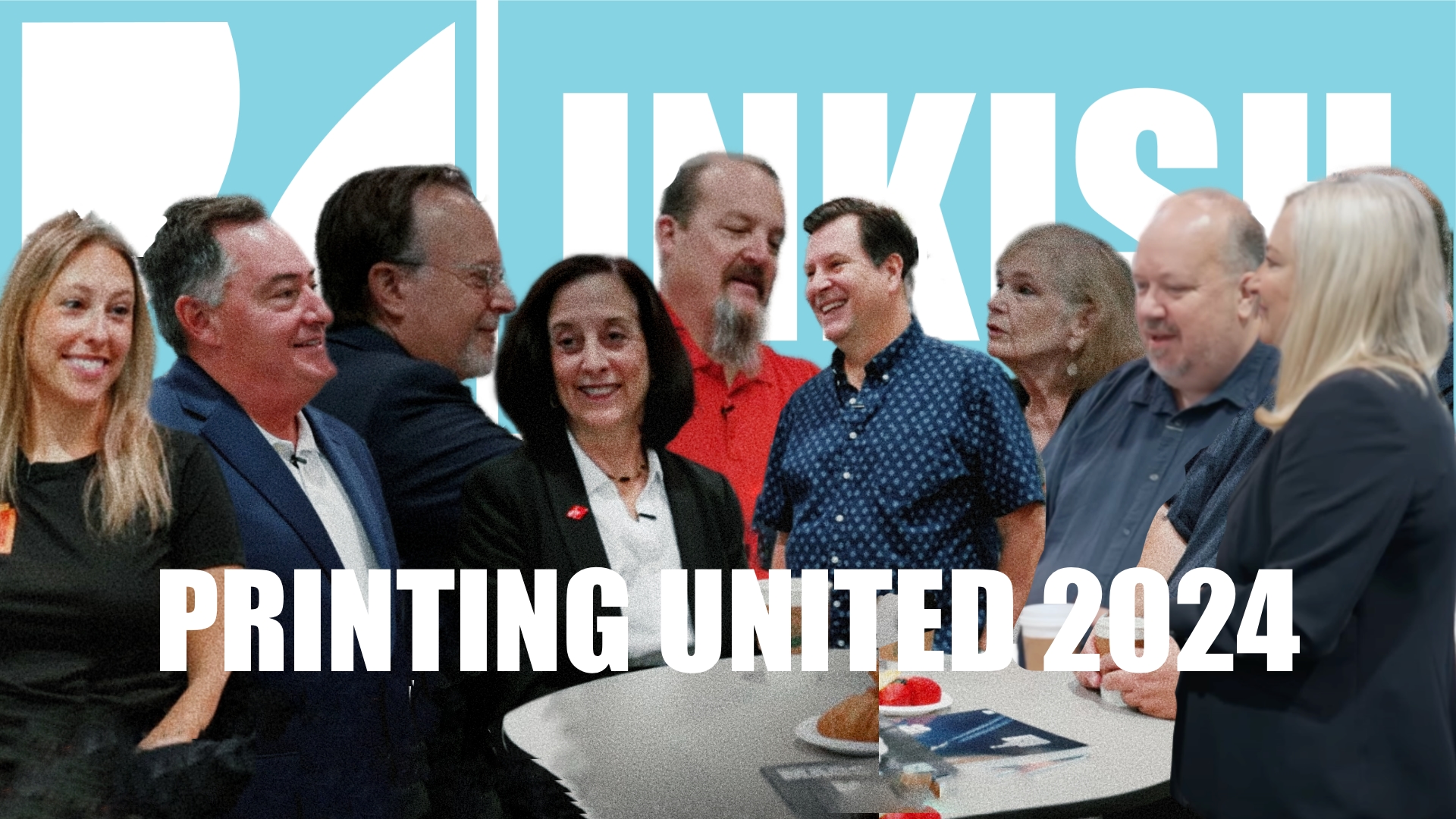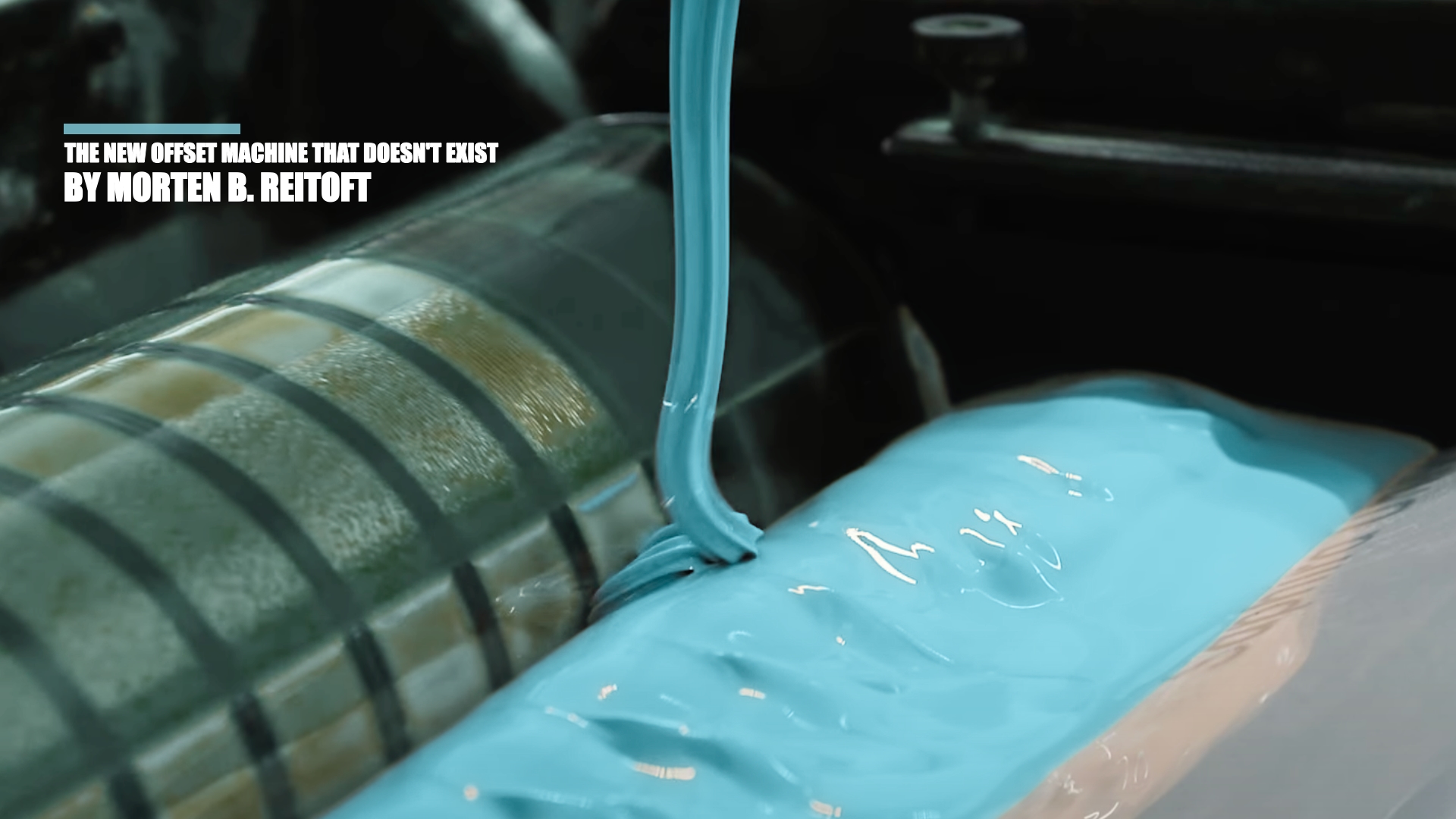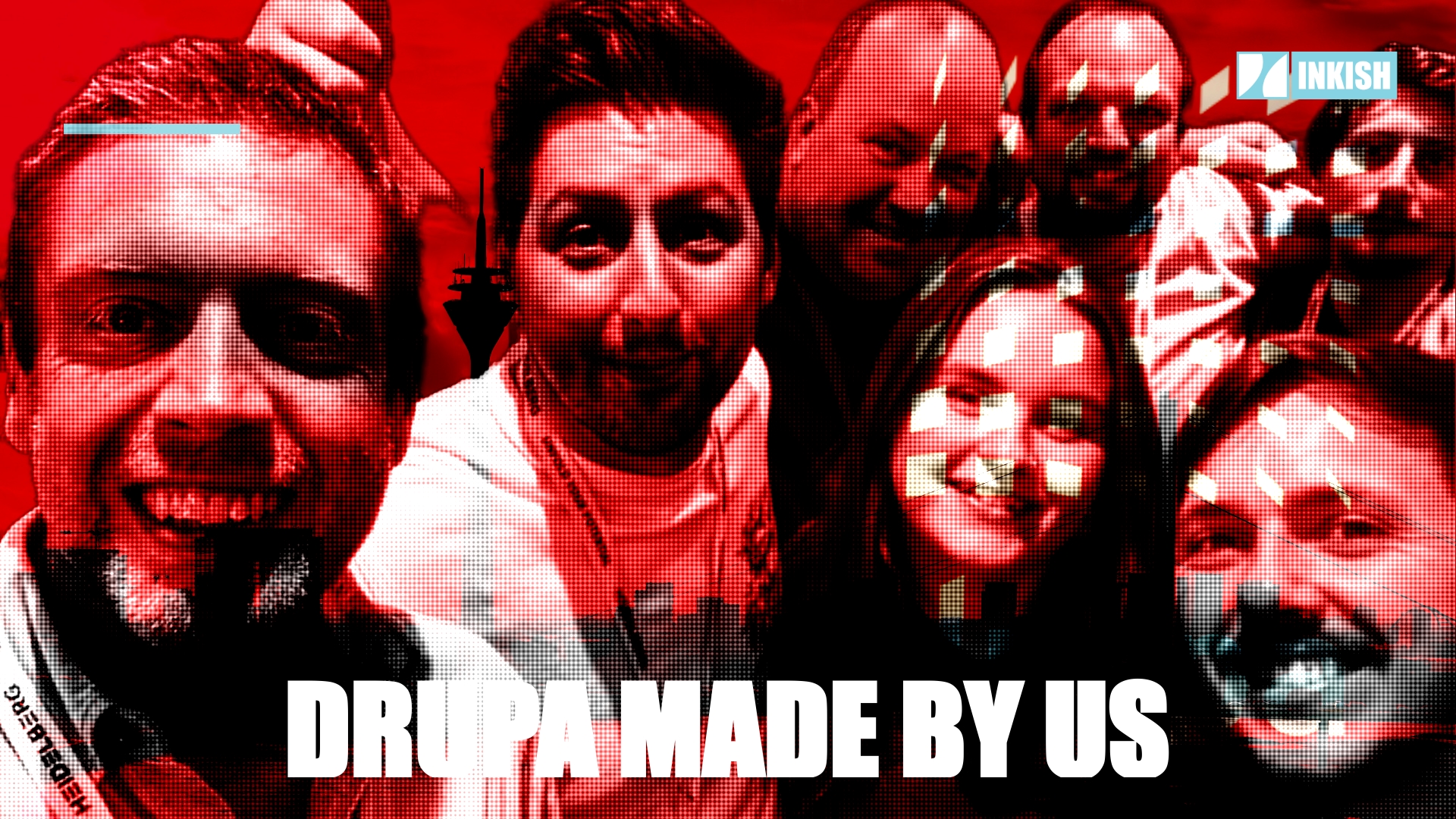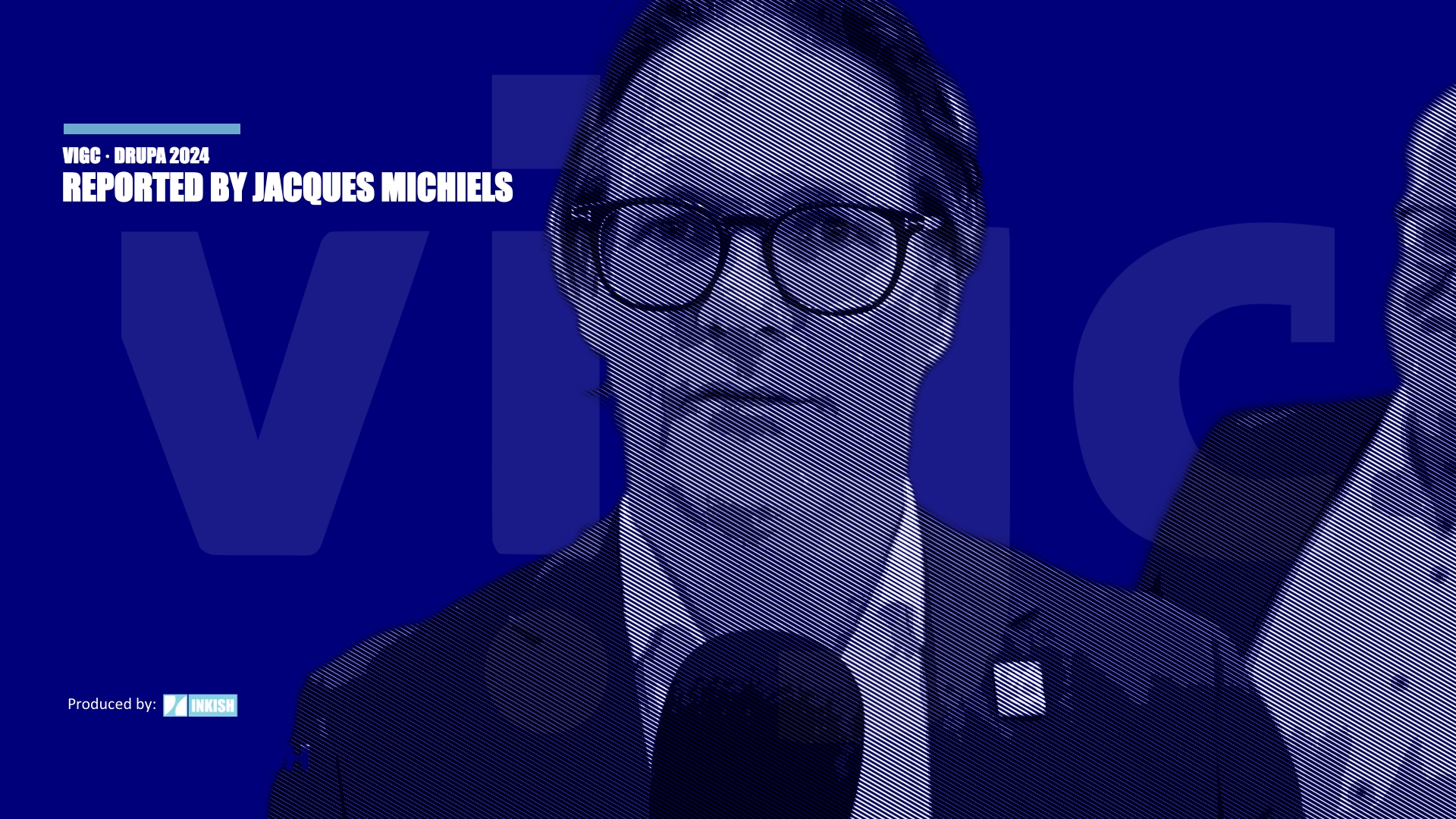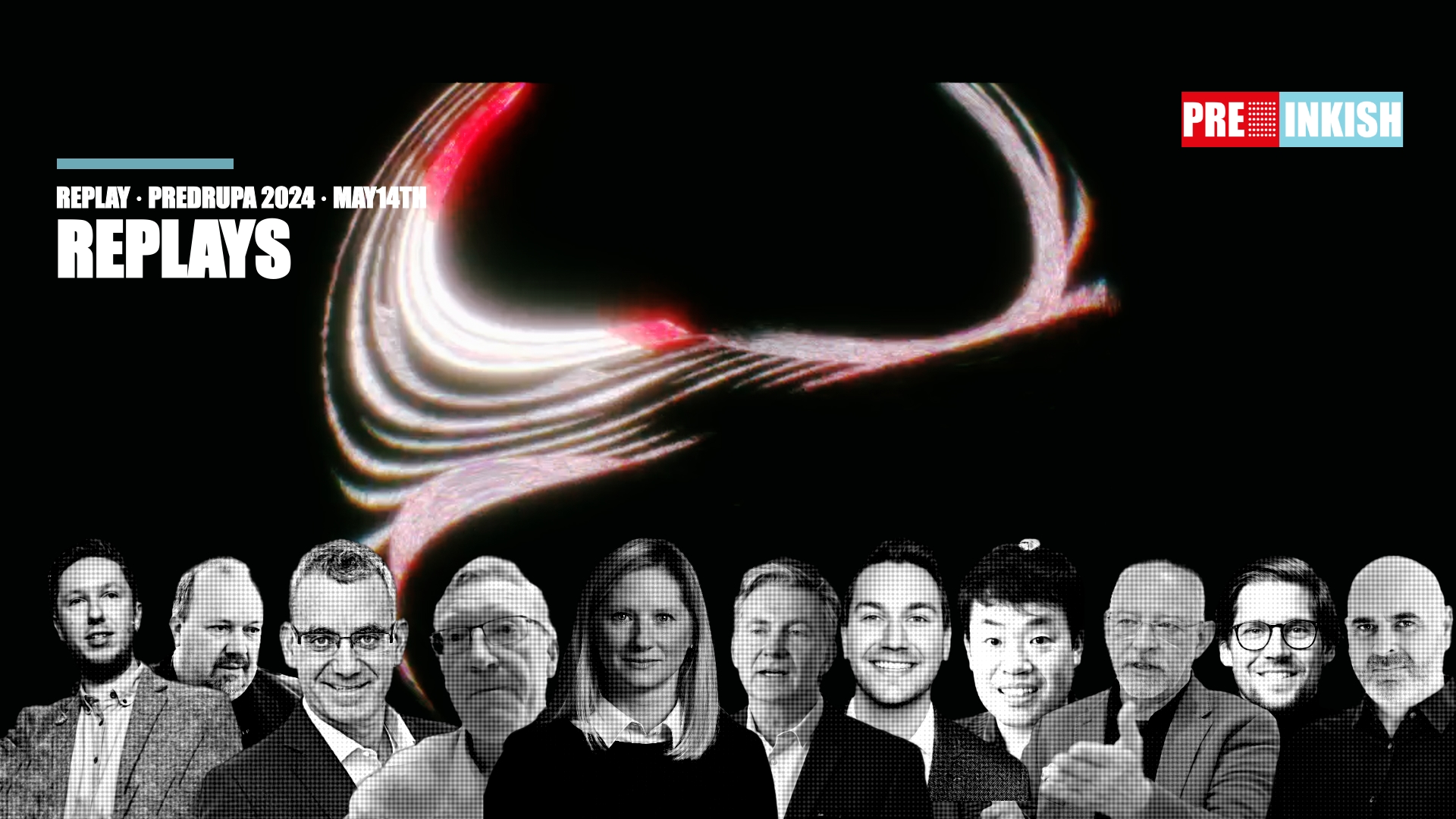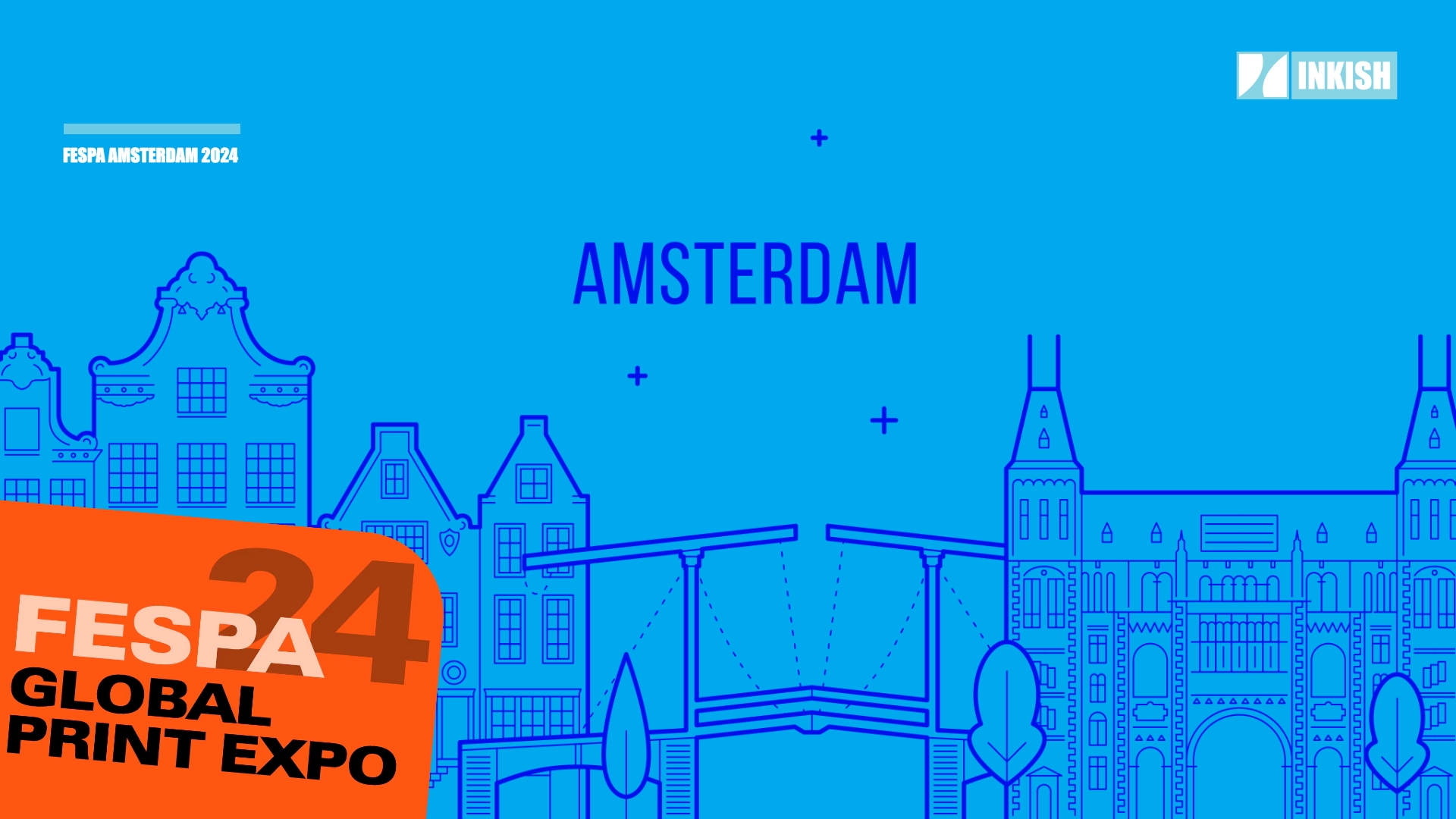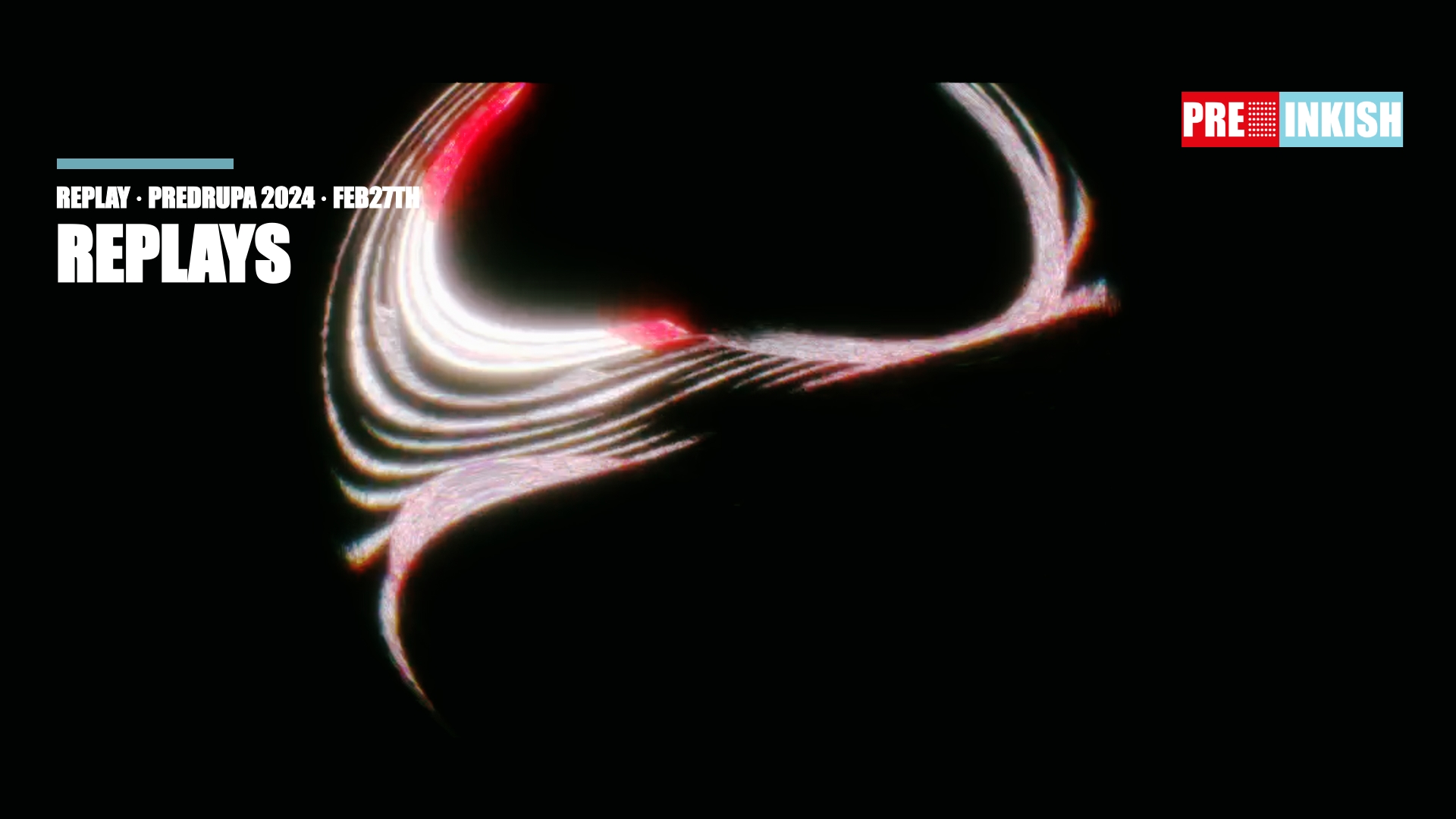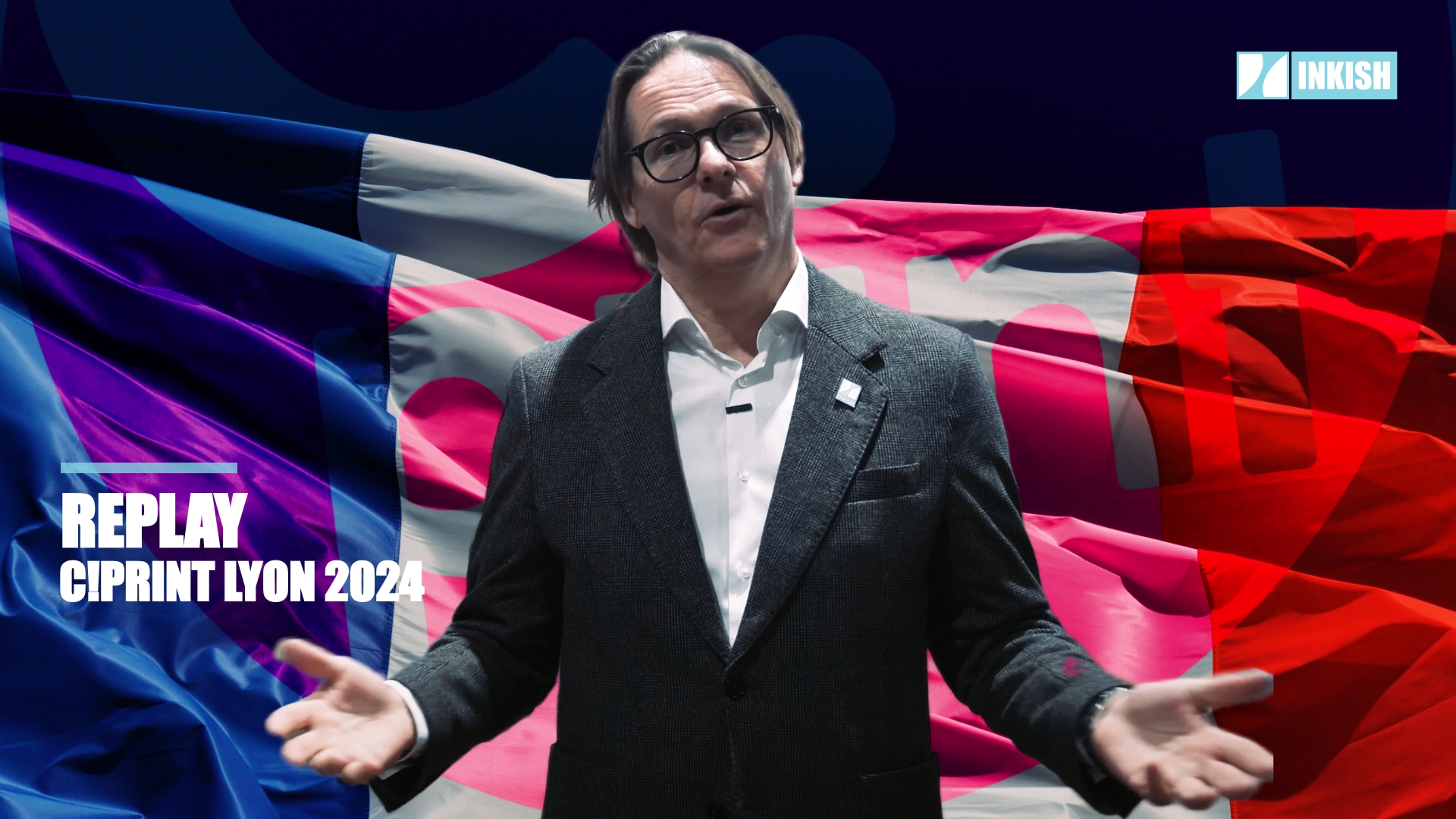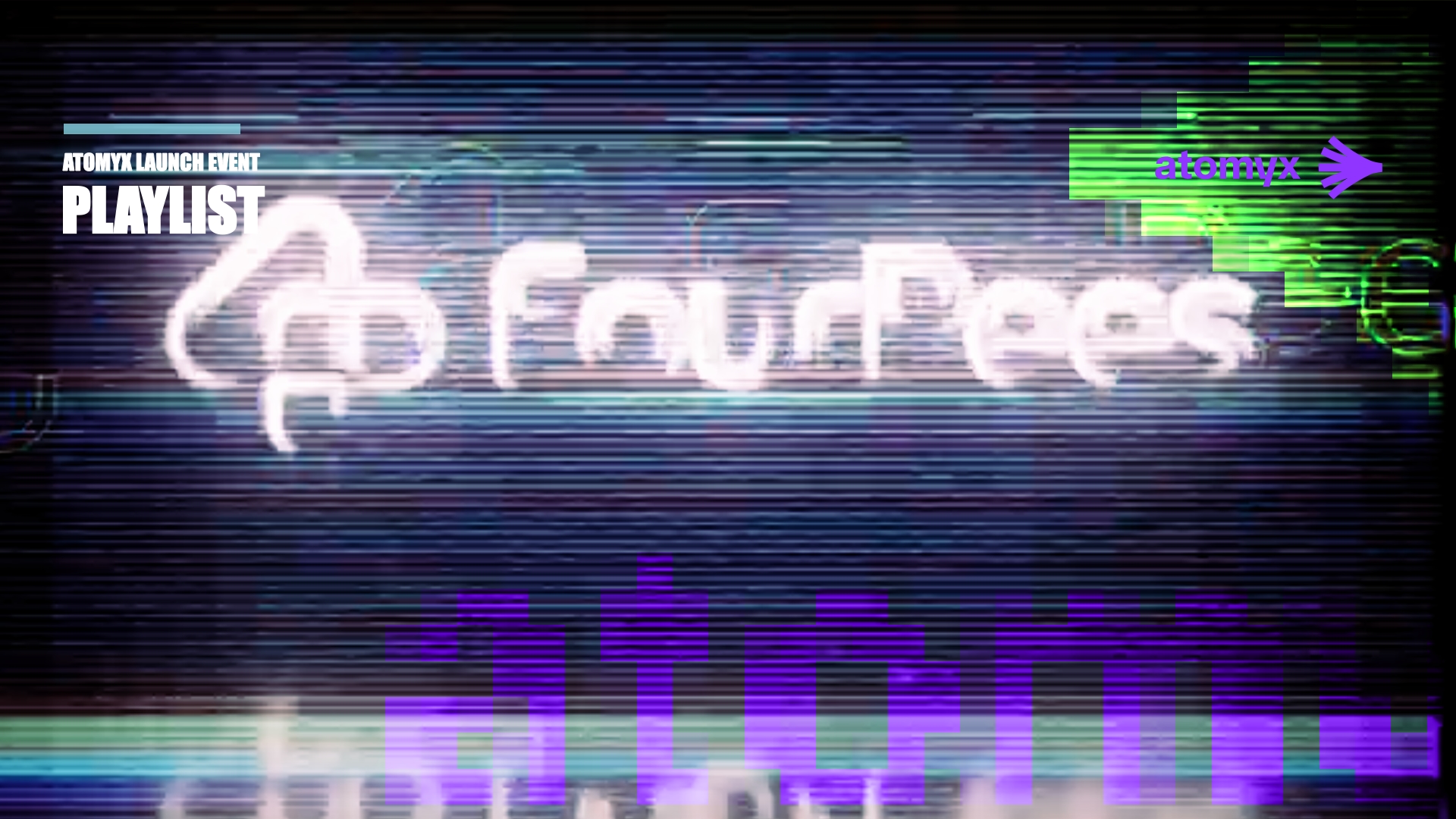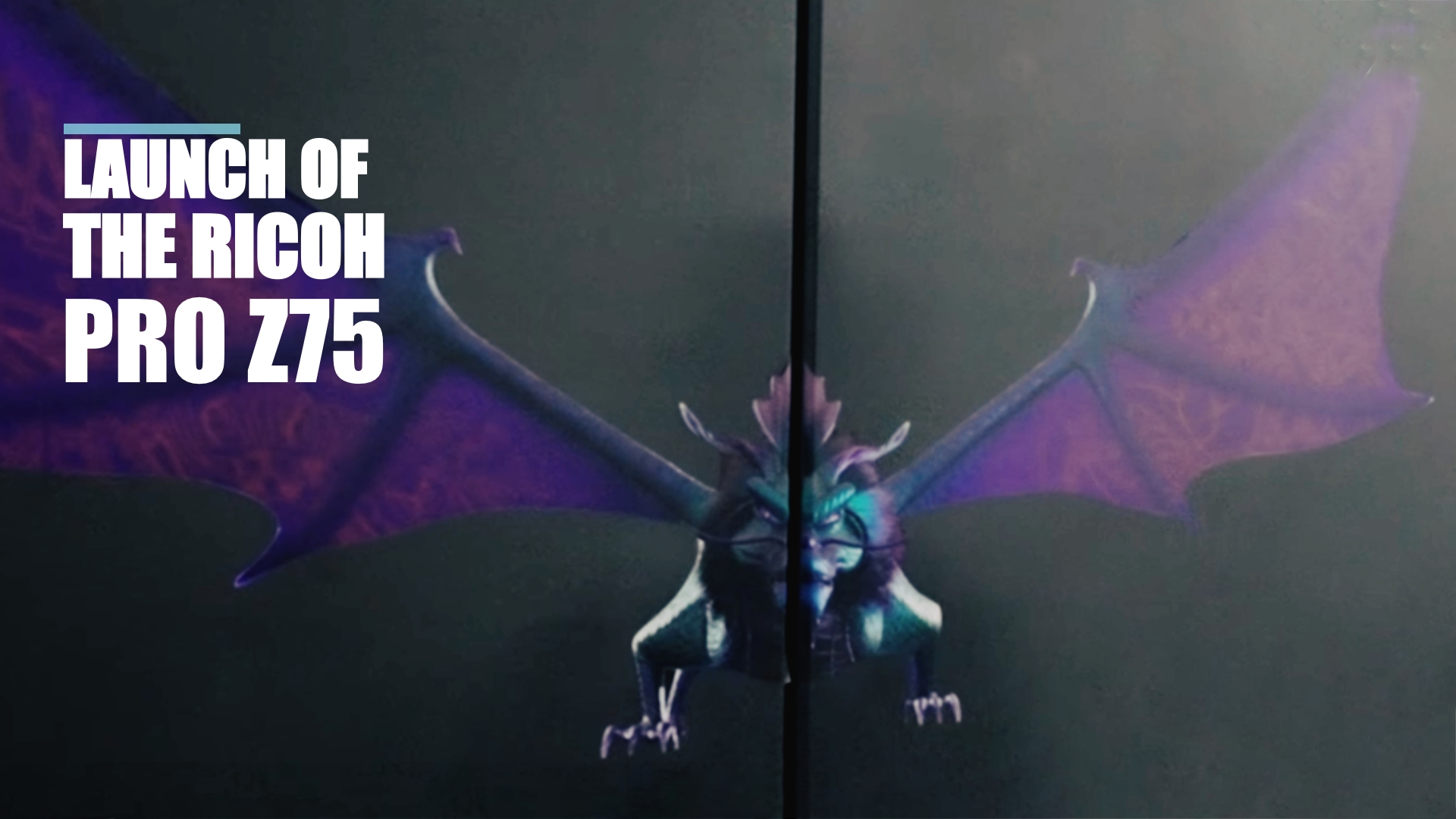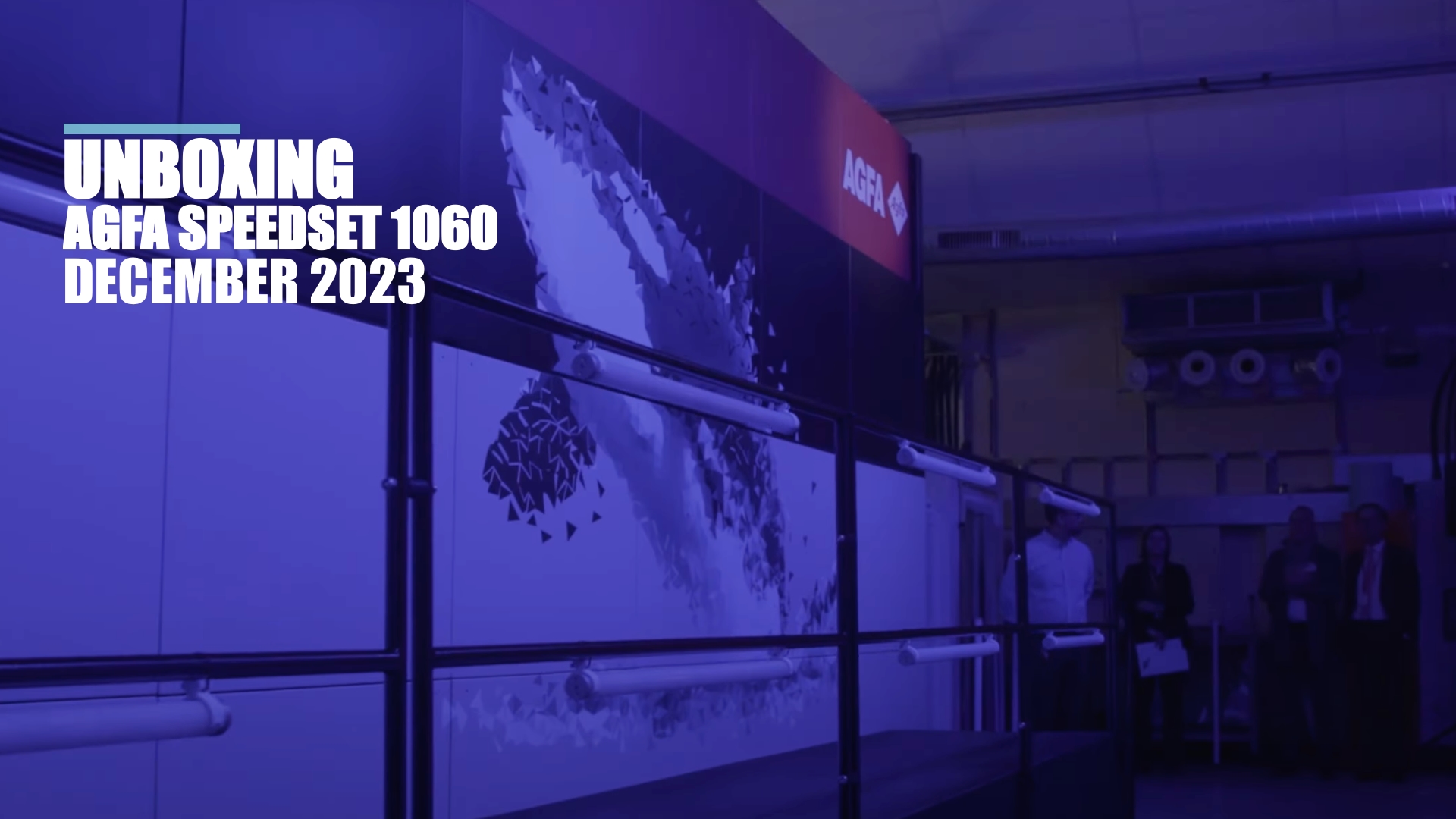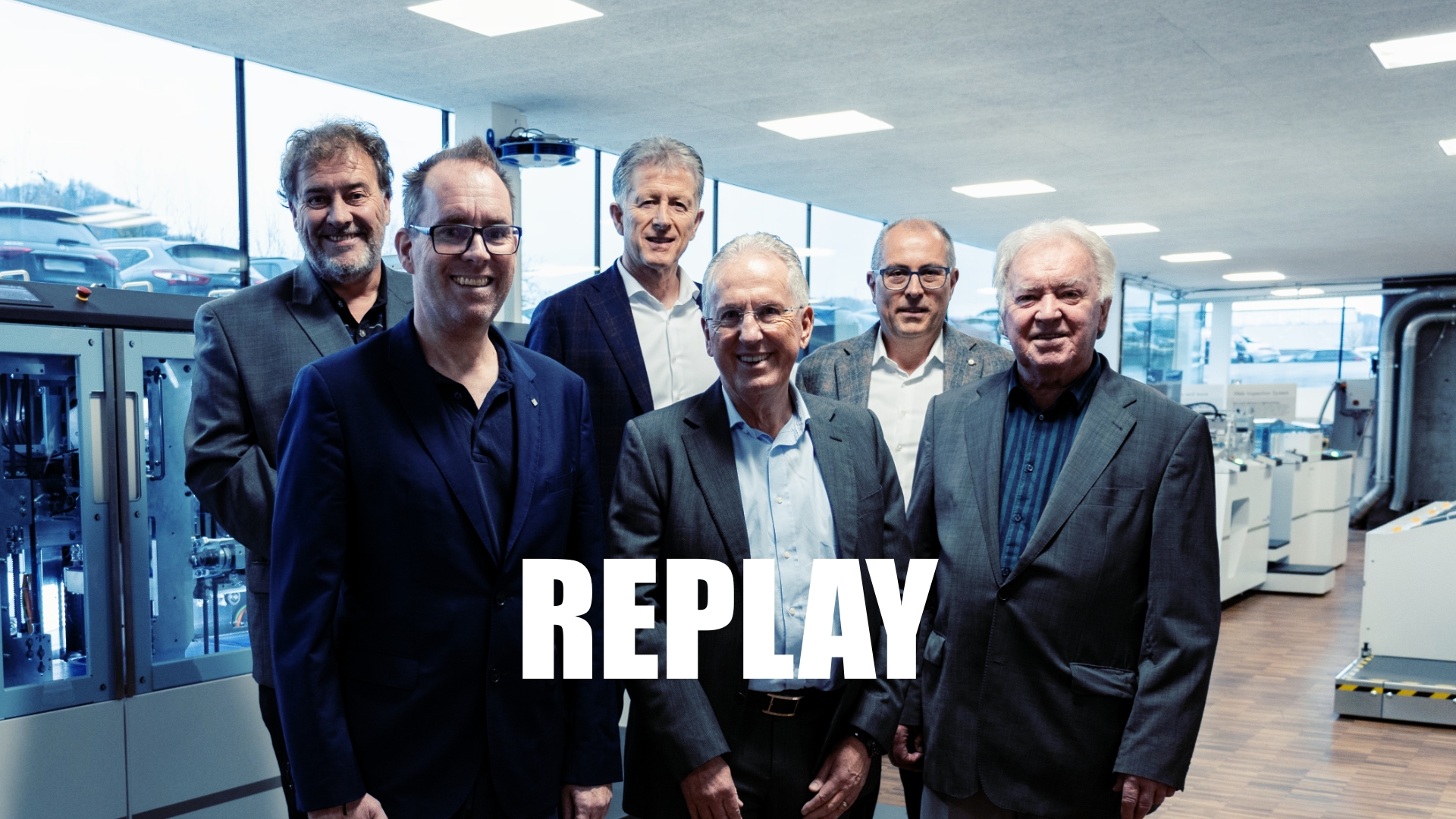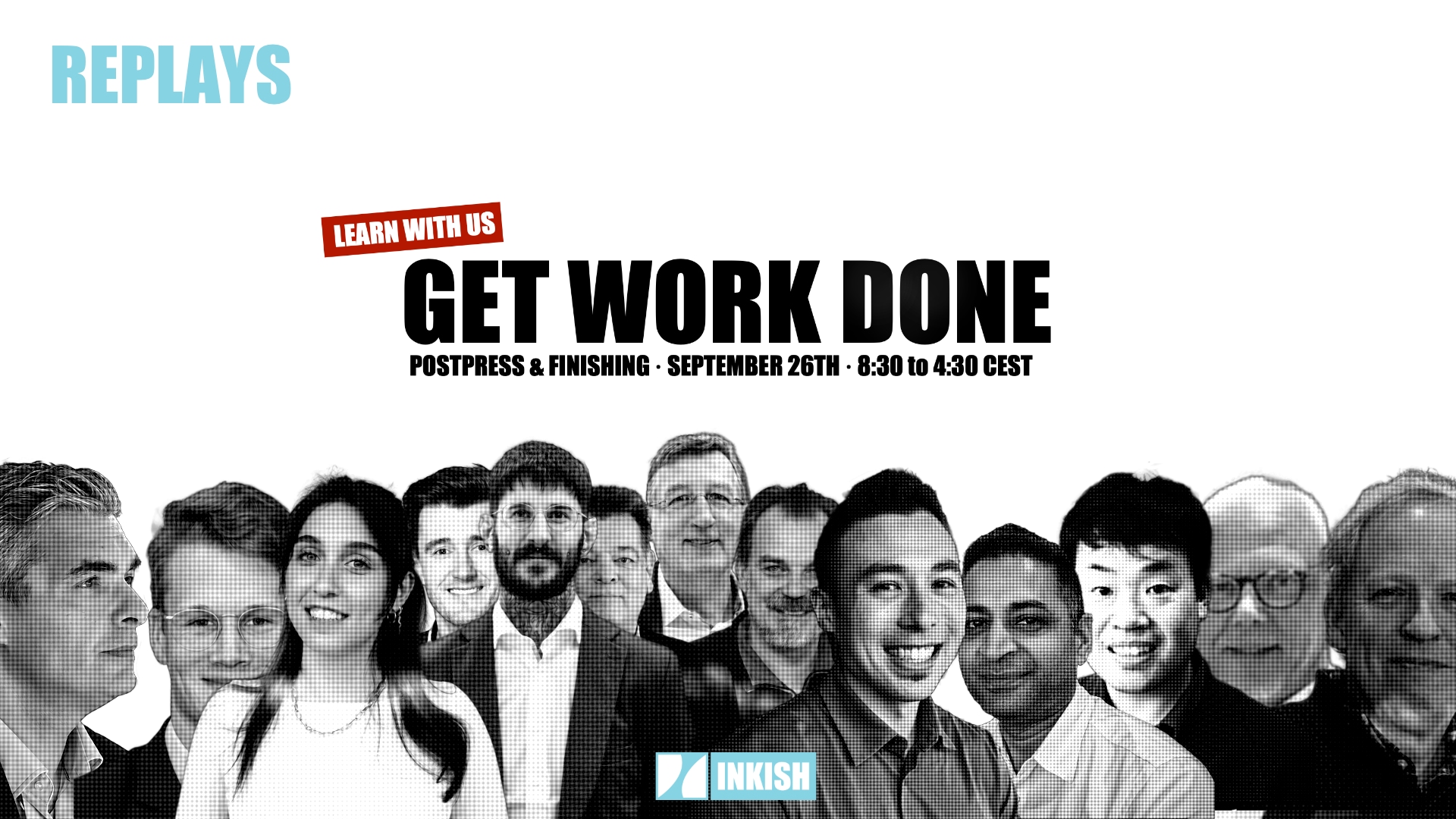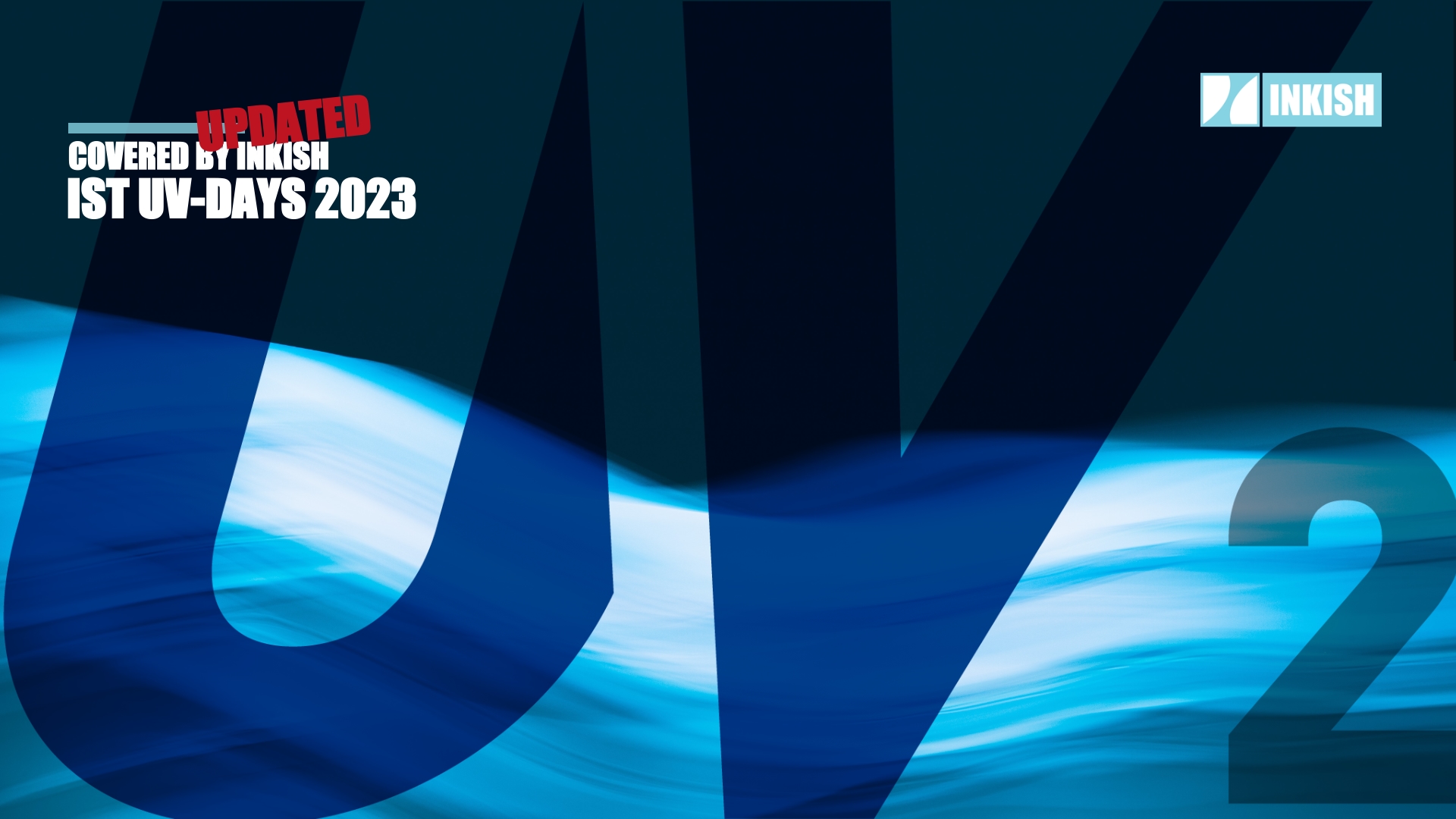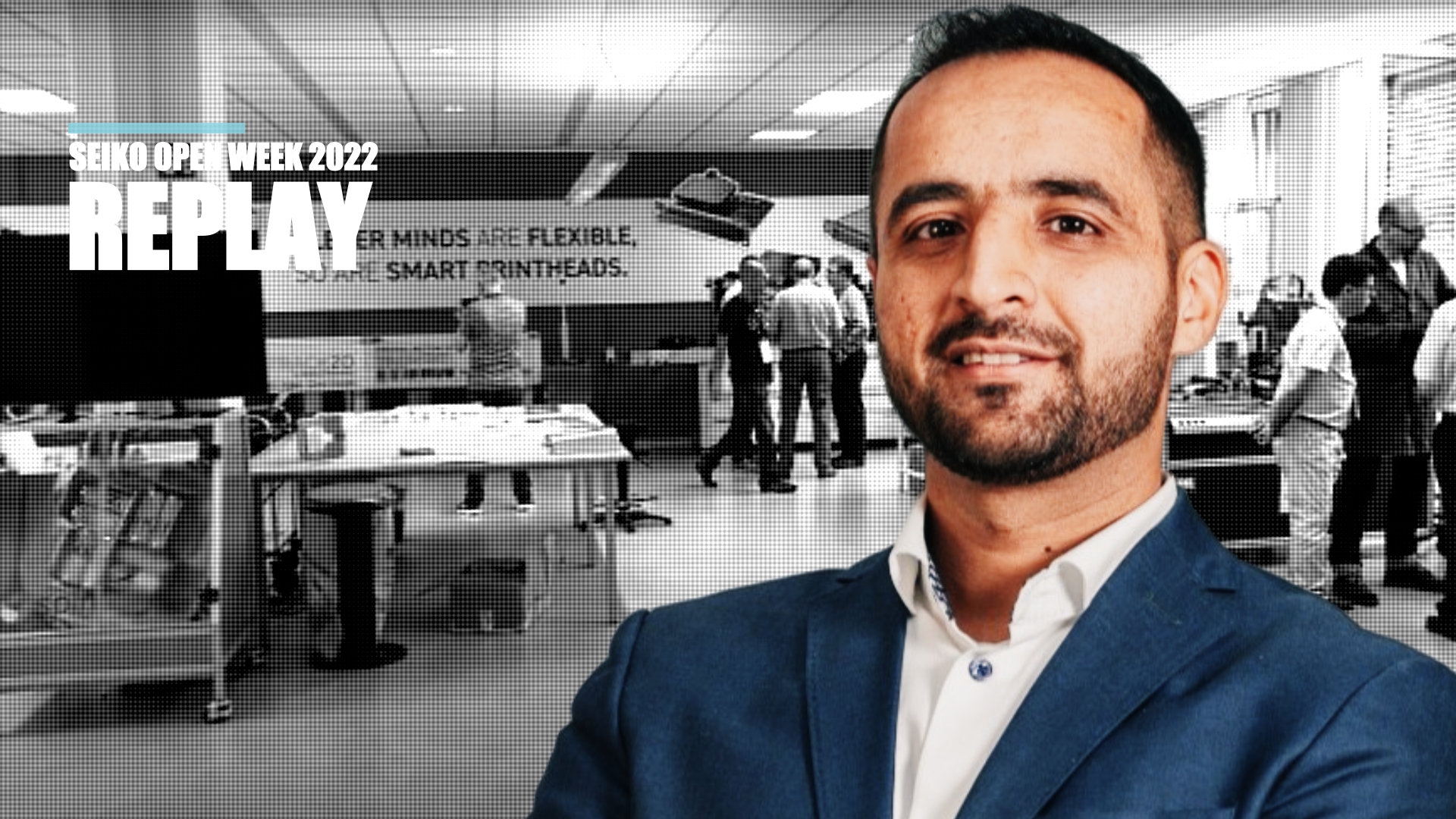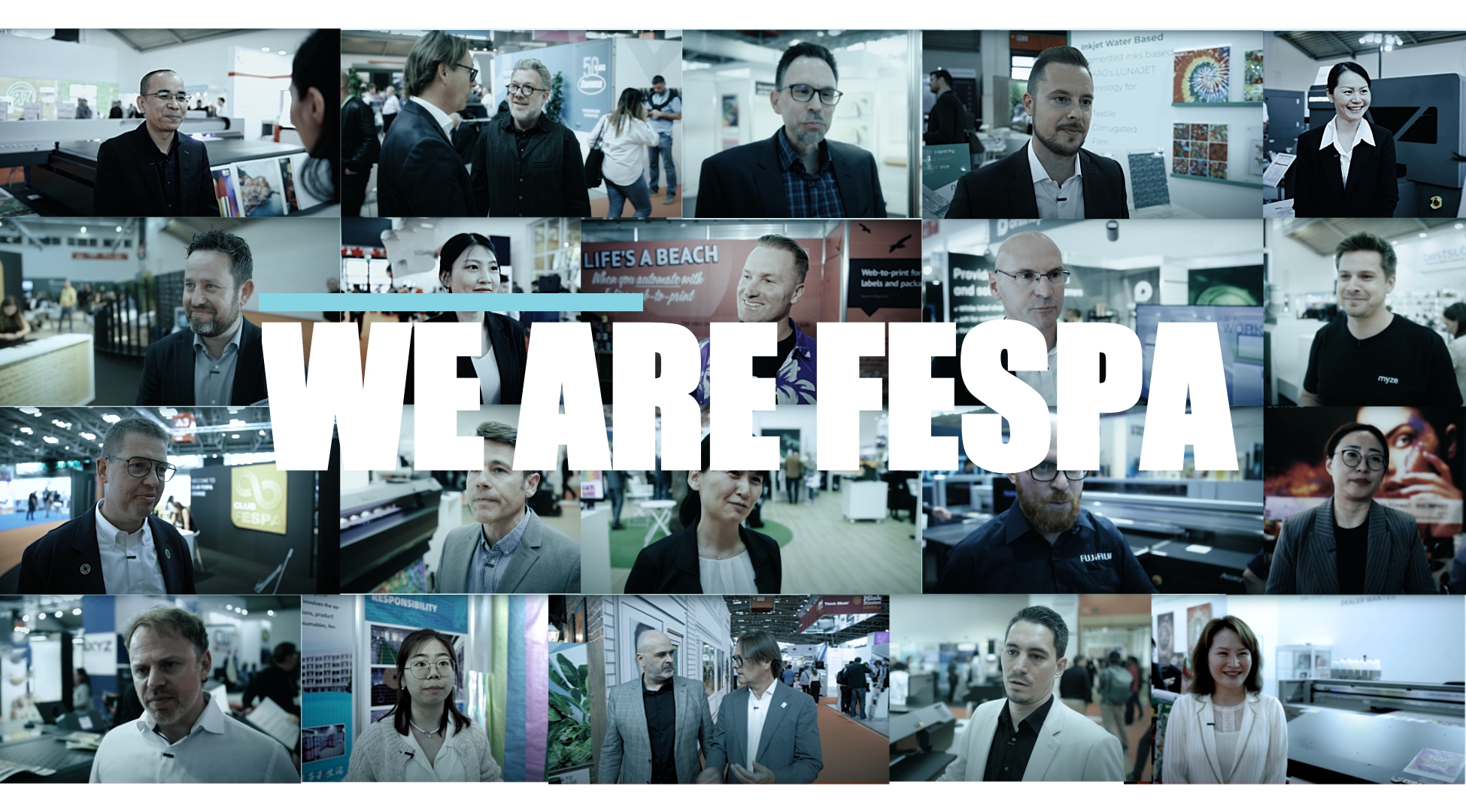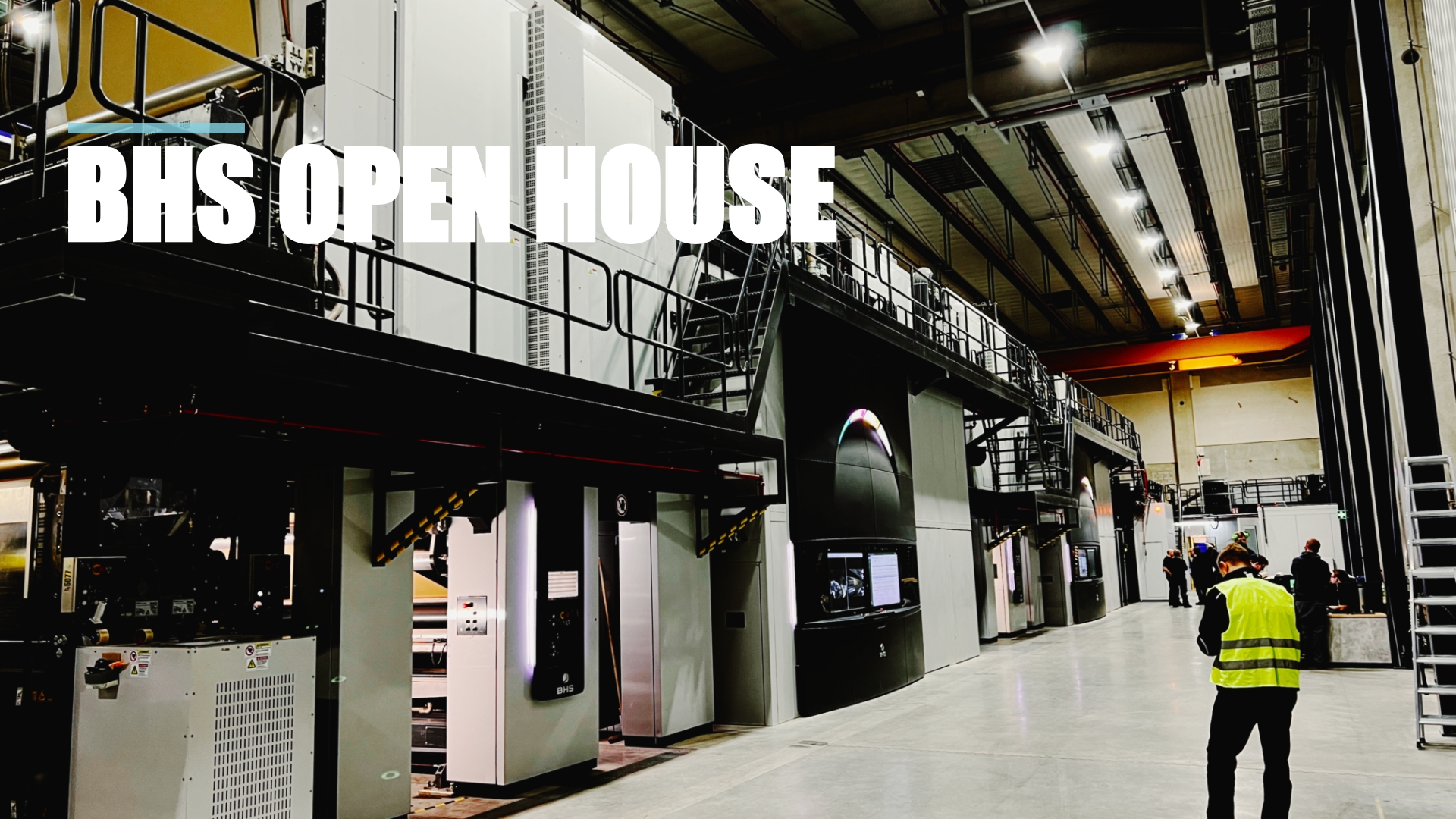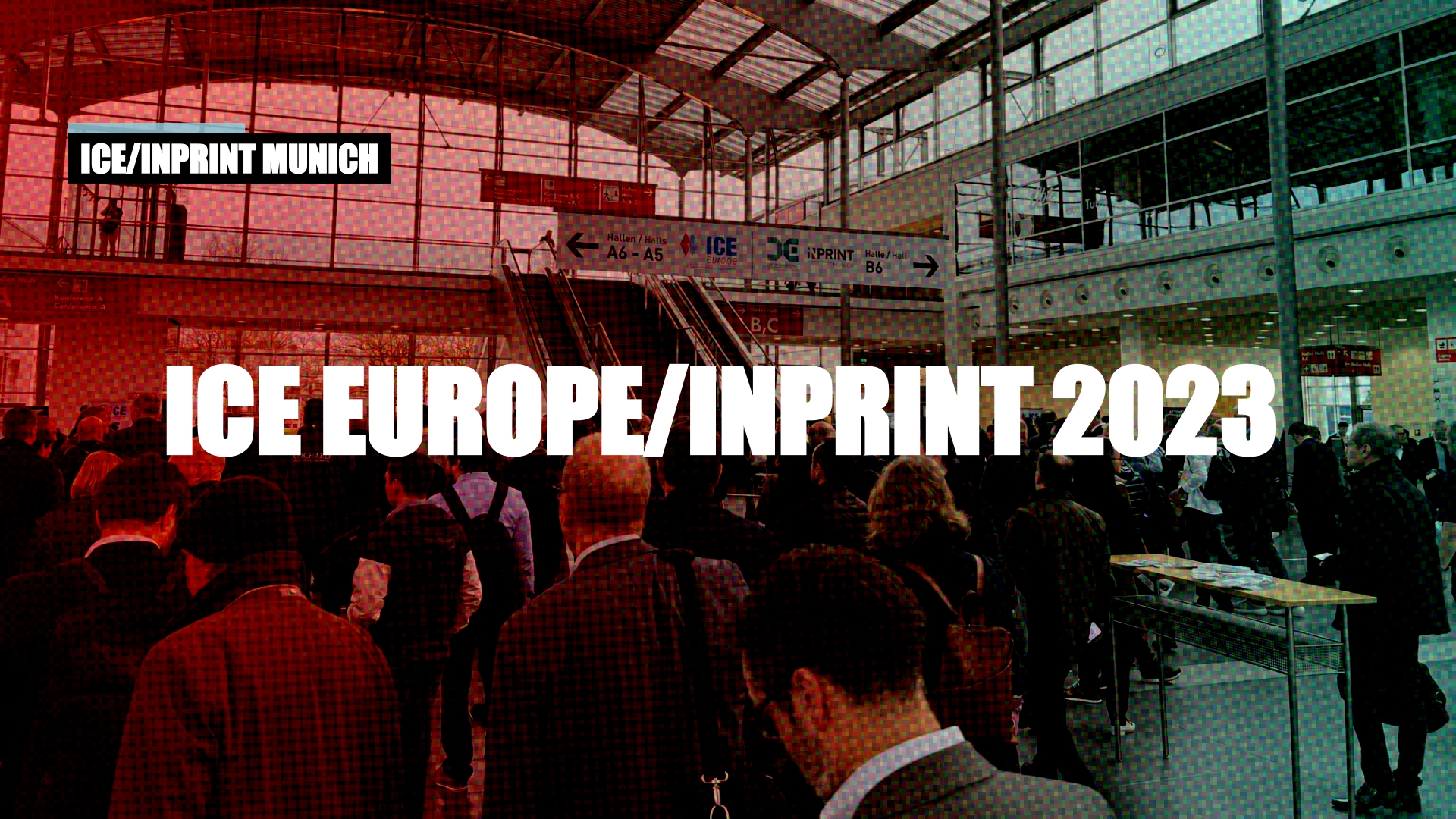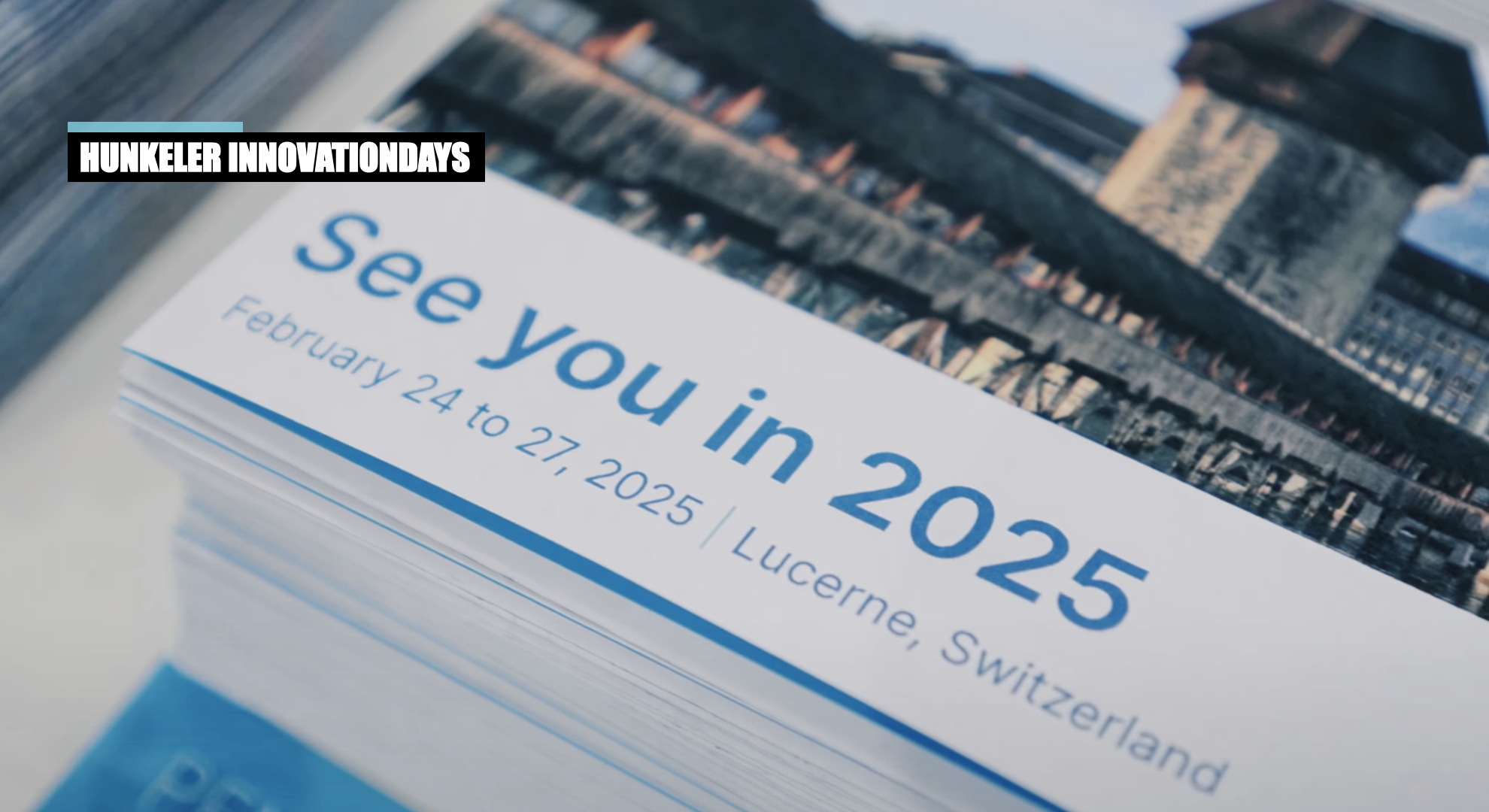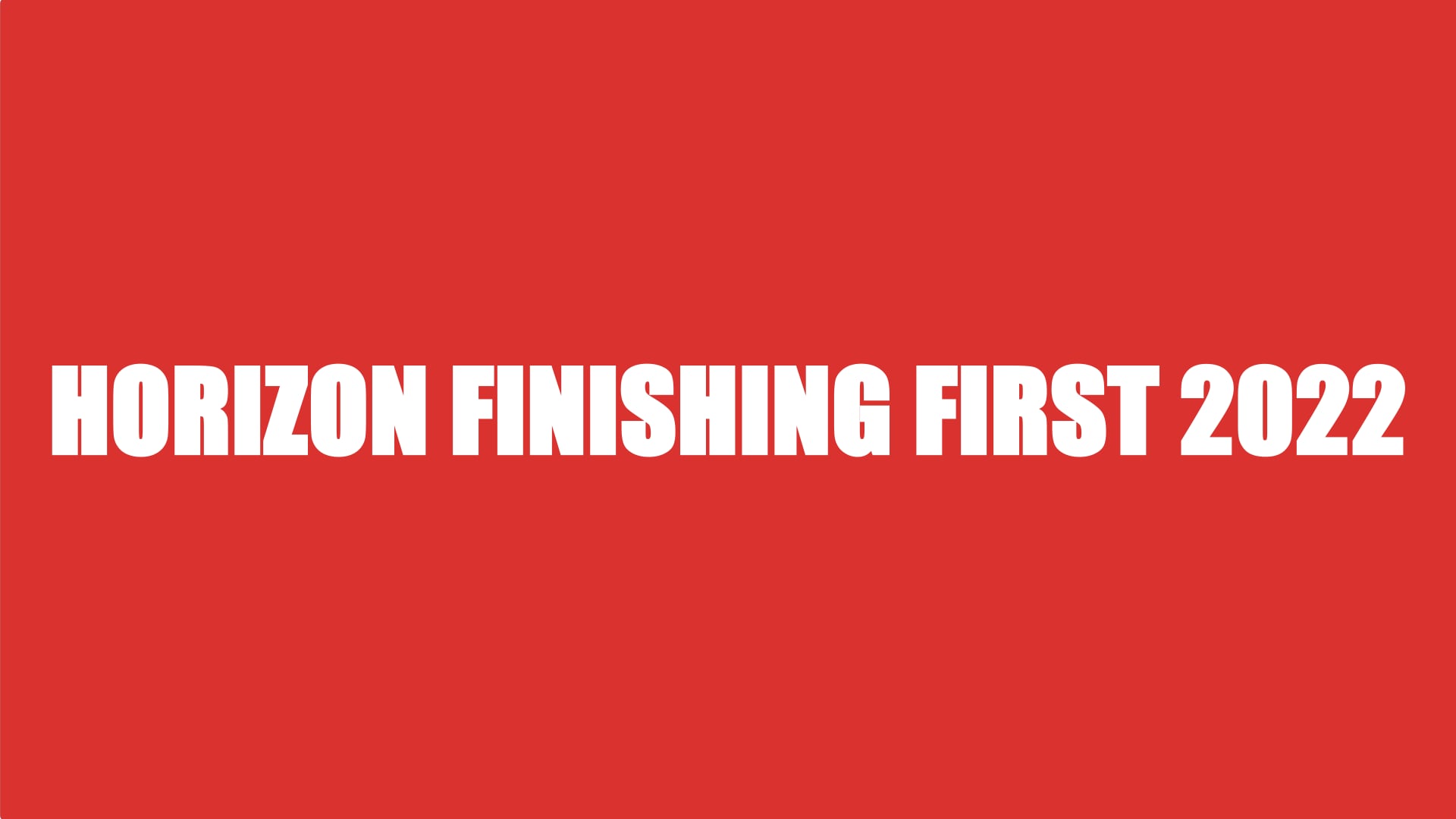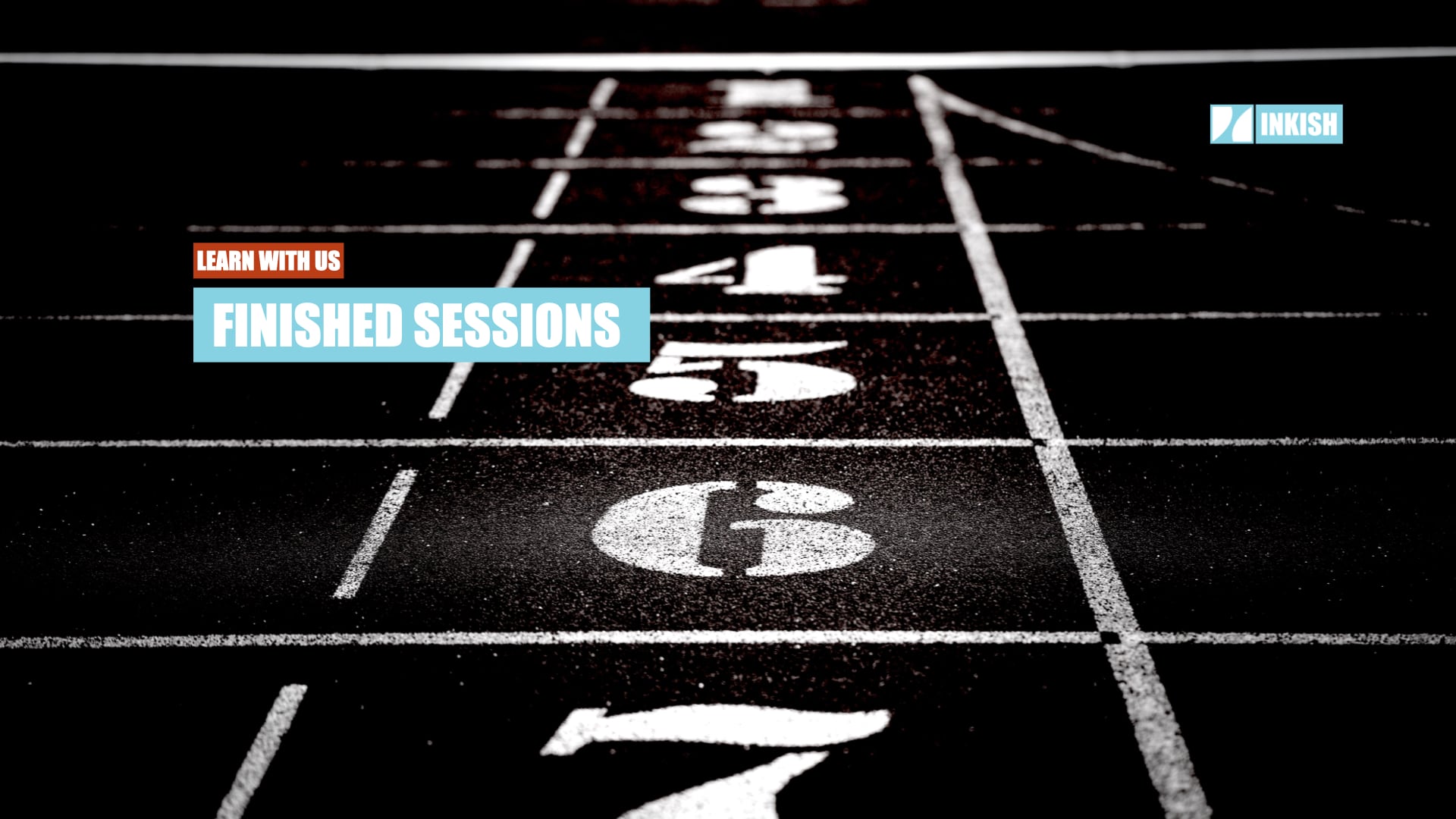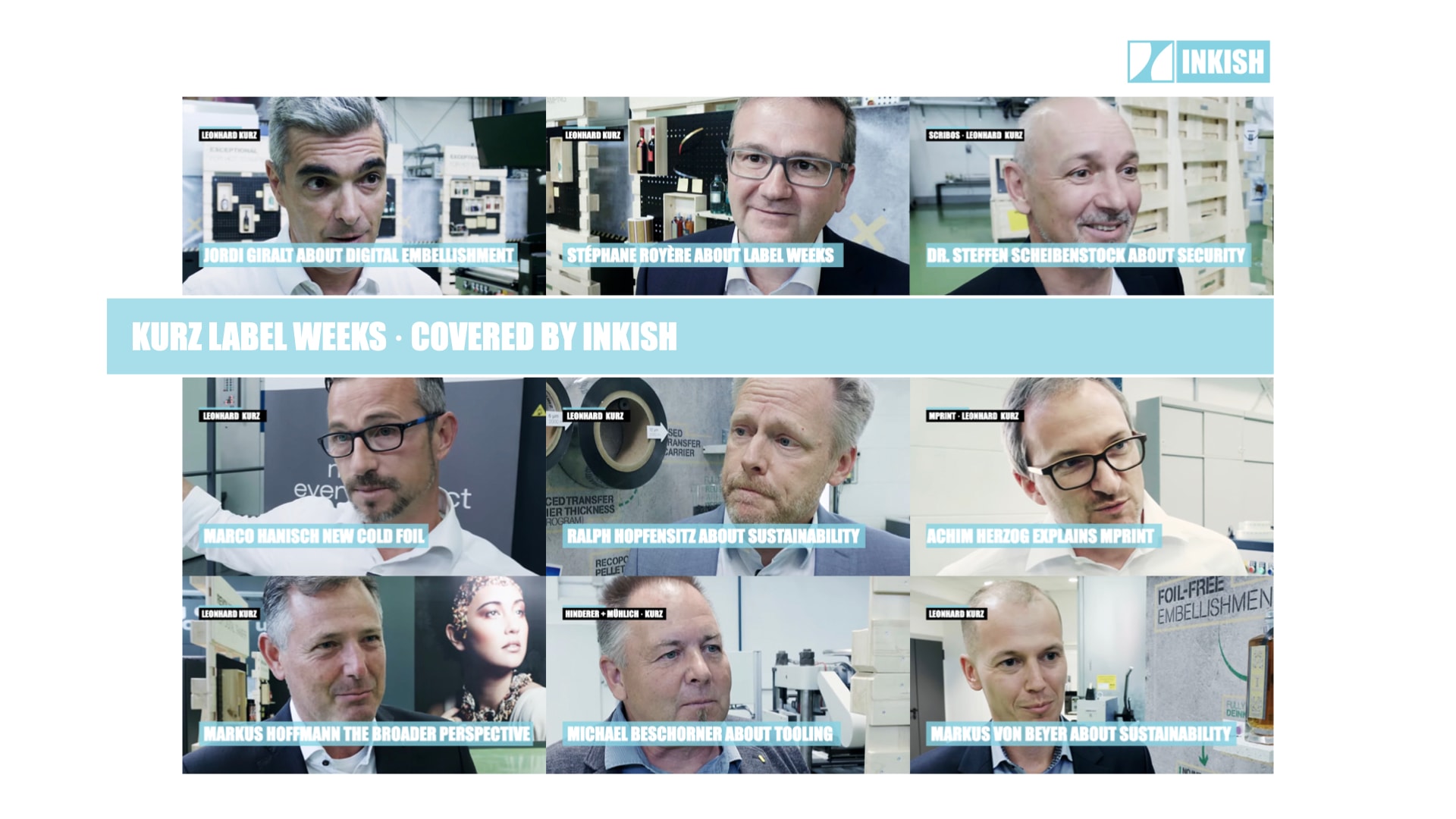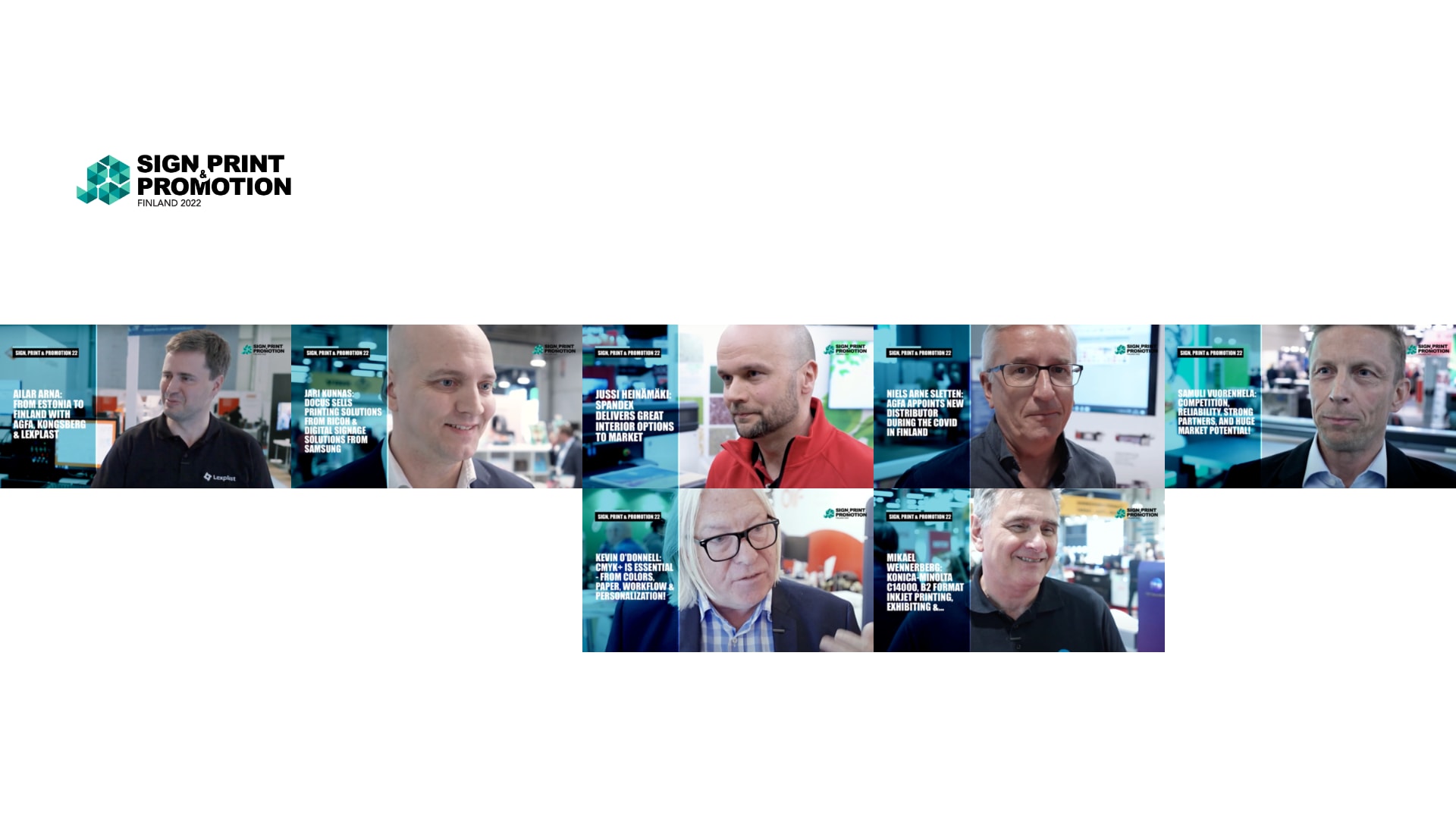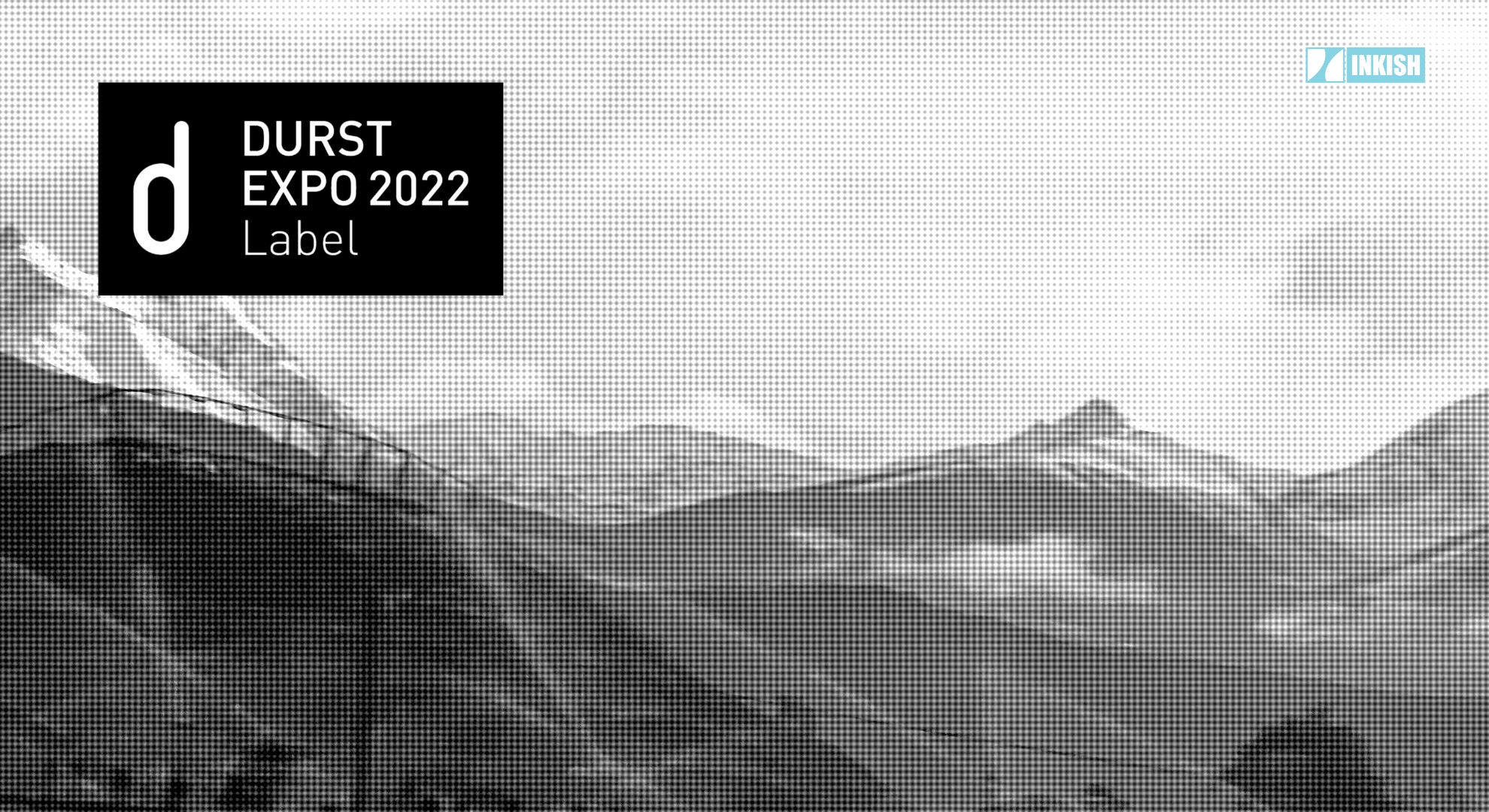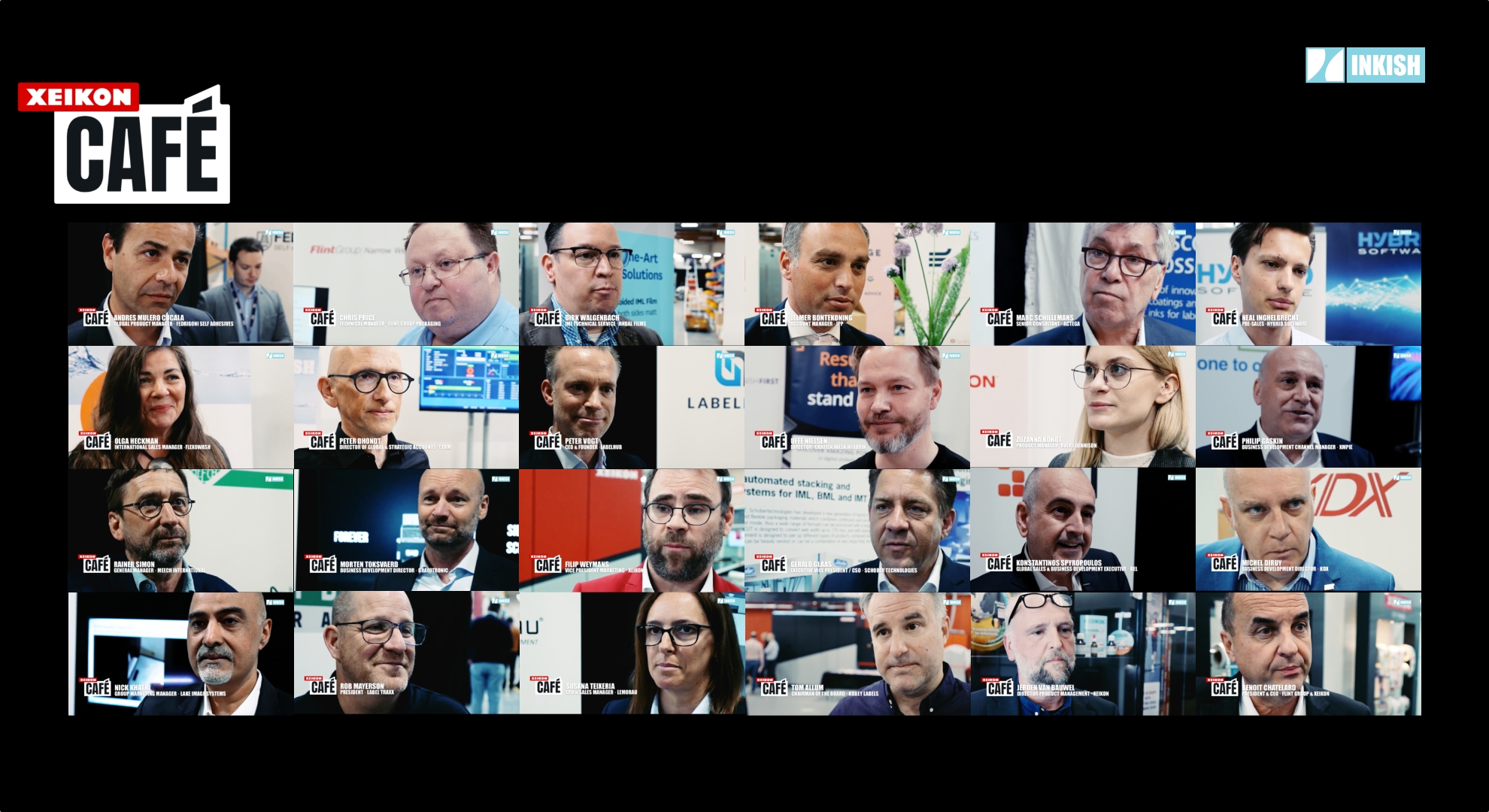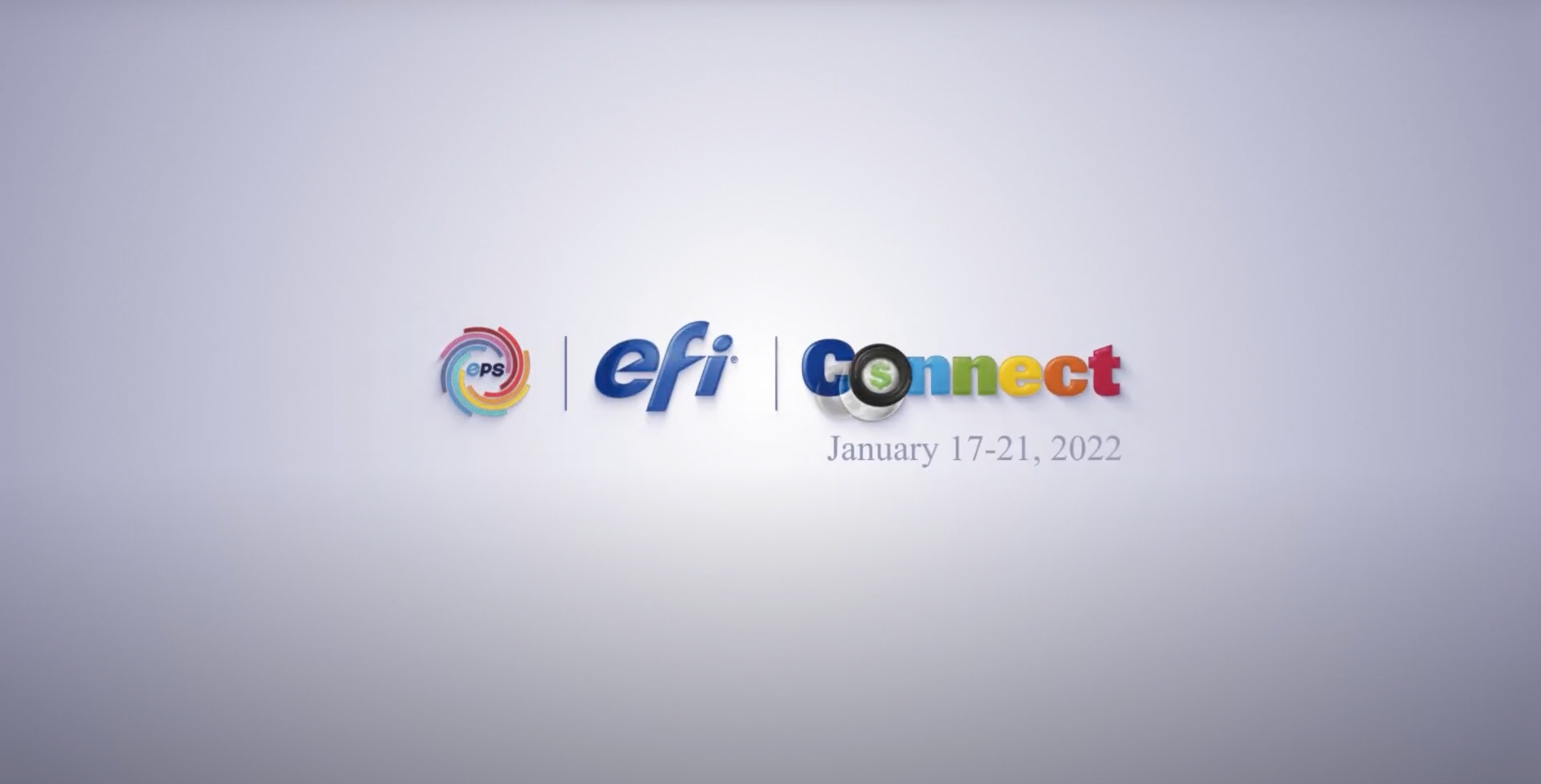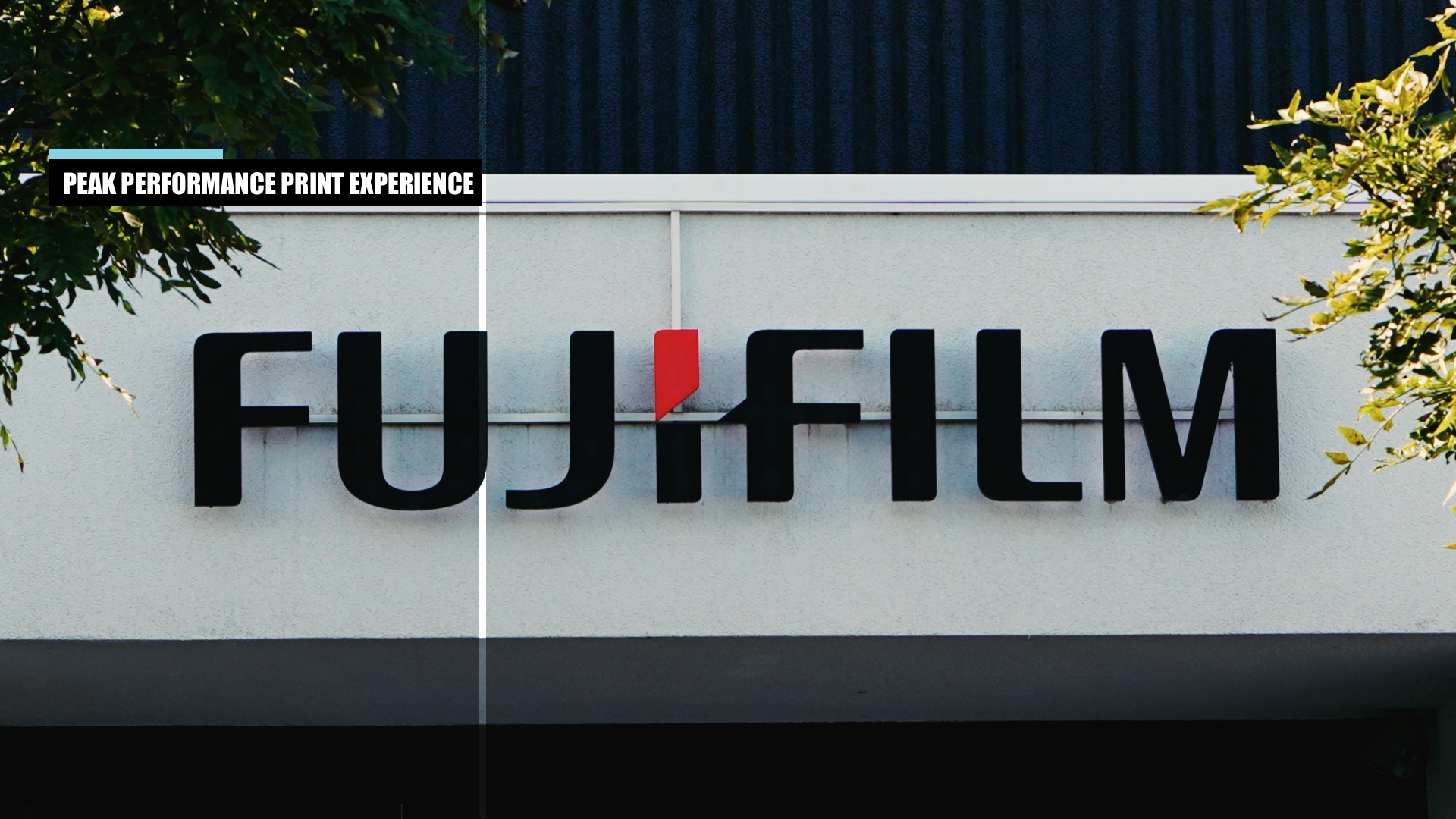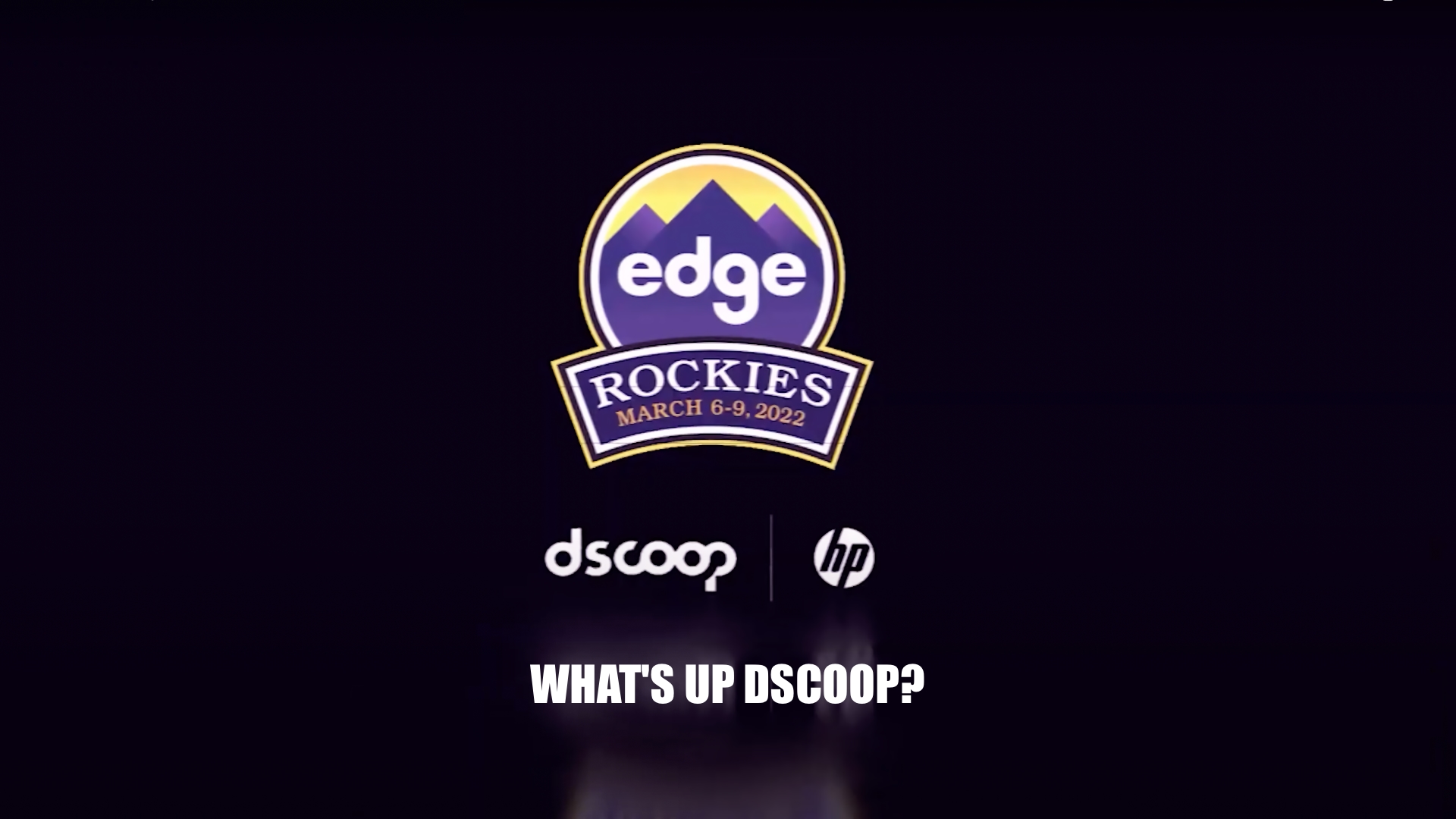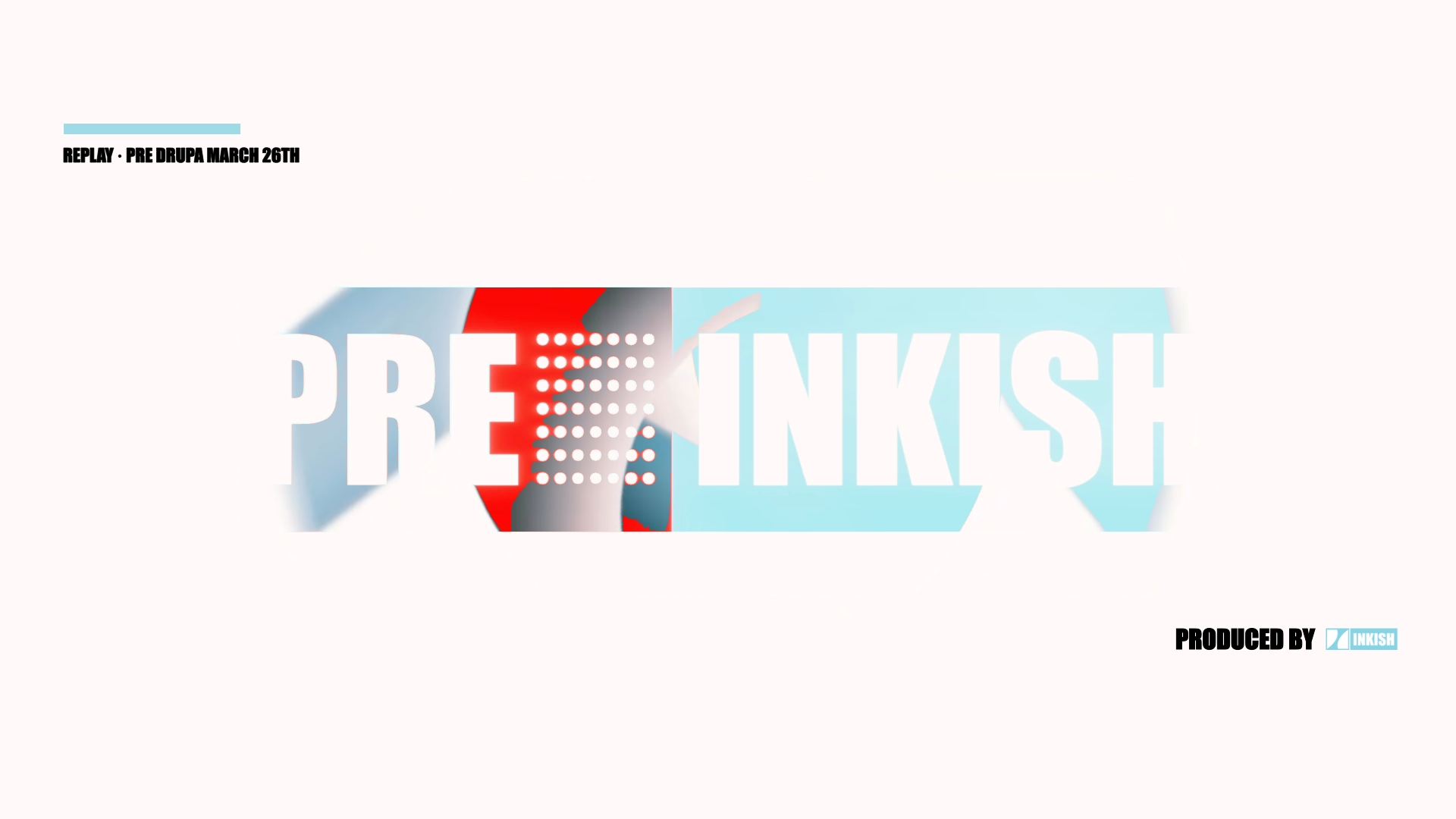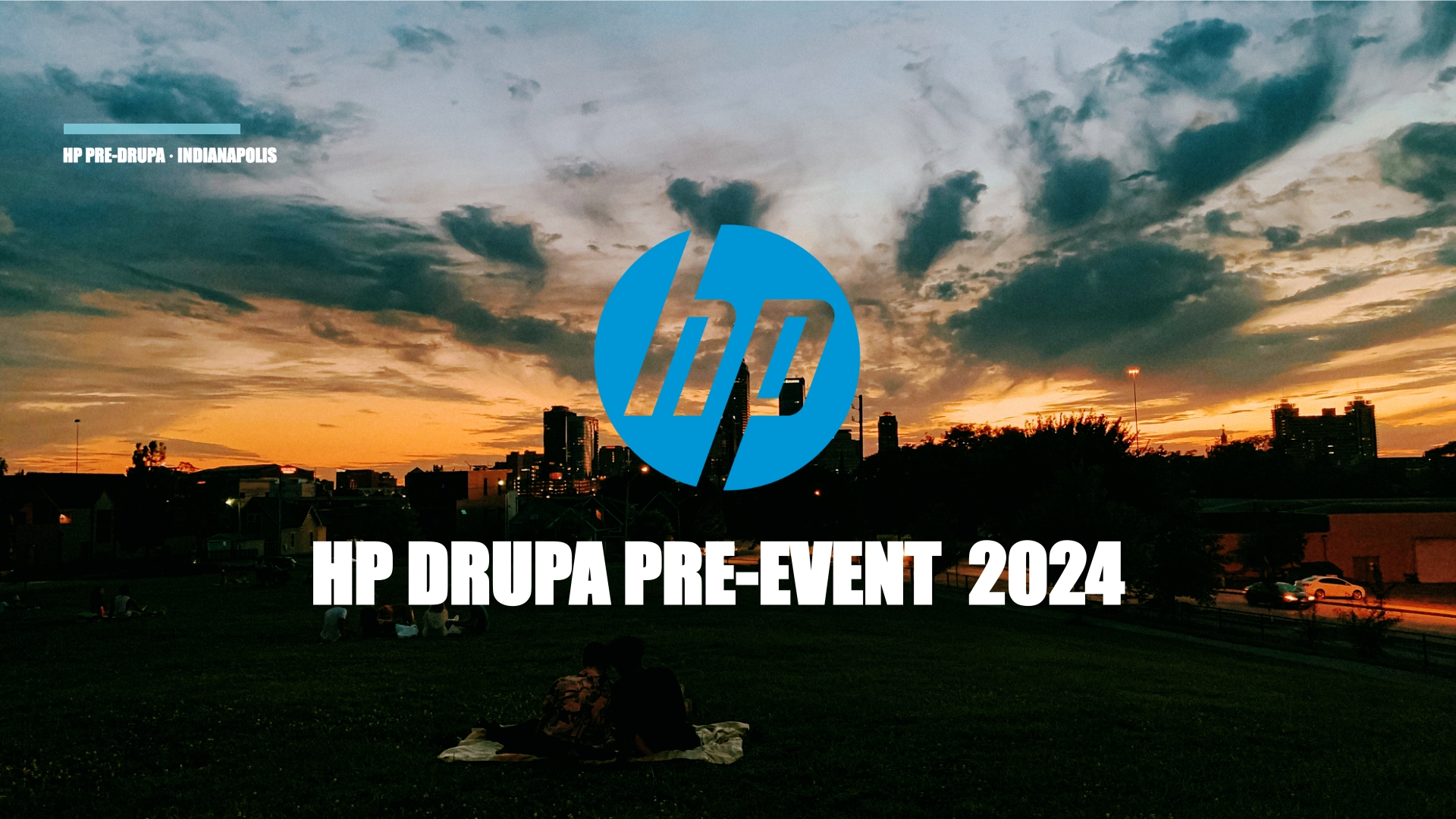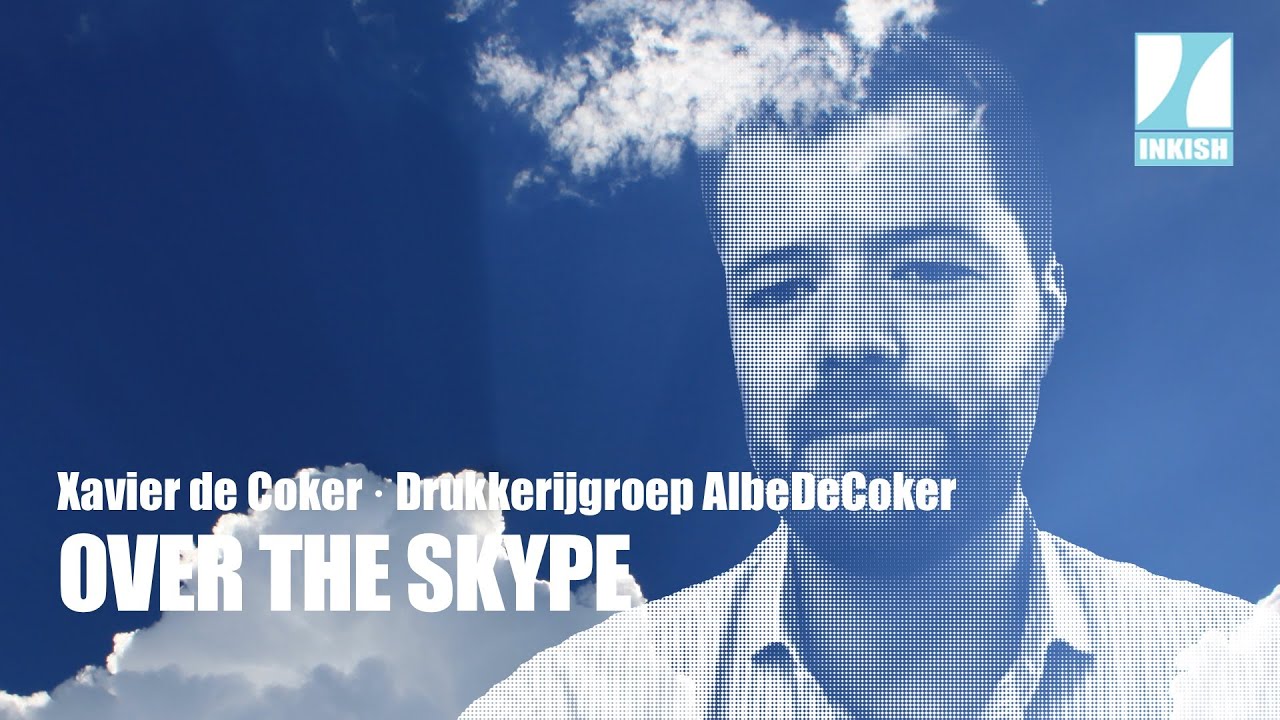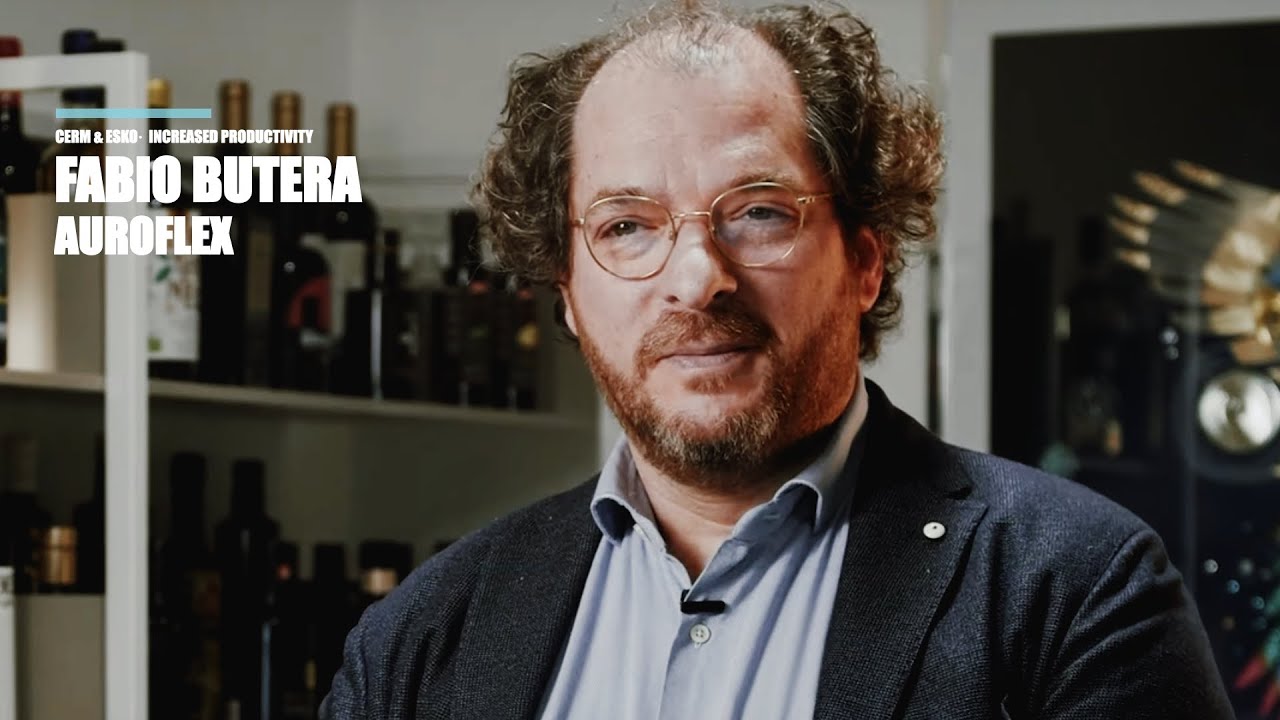Xavier De Coker · Over The Skype · Drukkerijgroep AlbeDeCoker
In this ‘Over the Skype’ session, Manager Xavier De Coker
from Drukkerijgroep AlbeDeCoker talks with Jacques Michiels from INKISH Benelux about the challenges and preparations for a “generational change” within a medium-sized graphic company. A tough subject that many printing companies are confronted with or will face in the (near) future.
Xavier also provides insights into what he believes can be important distinguishing factors for a modern graphics company in which a
win-win model in pursuit of cost savings and efficiency are important.
Furthermore, the purchasing philosophy adapted by AlbeDeCoker regarding Sustainability and Green and Lean Supply chain / suppliers is up for discussion AND becoming a part of their strategy, even further than, for example, FSC and PEFC certified raw materials.
An important signal / message to the graphics supply industry ?!
Watch, like and share as usual !
In deze ‘Over the Skype’-sessie spreekt Manager Xavier De Coker
van Drukkerijgroep AlbeDeCoker met Jacques Michiels van INKISH Benelux over
de uitdagingen en voorbereidingen van een “generatiewissel” binnen een middelgroot grafisch bedrijf, een pittig onderwerp waar vele drukkerijen mee geconfronteerd worden of zullen worden in de (nabije) toekomst.
Xavier geeft verder nog inzichten in wat volgens hem belangrijke onderscheidende factoren kunnen zijn voor een moderne grafisch bedrijf waarin een win-win model bij streven naar kostenbesparing en effeciëntie belangrijk zijn.
Verder staat de door AlbeDeCoker aangepaste inkoopfilosofie met betrekking tot Duurzaamheid en Groene en Lean Supply chain / leveranciers ter discussie als onderdeel van hun strategie, zelfs verder dan de FSC en PEFC gecertificeerde grondstoffen.
Een belangrijk signaal / bericht naar de grafische toeleveringsindustrie ?!
Kijk, “like” en deel zoals gewoonlijk!
Hey, Xavier. Thank you for joining us and of course welcome. For now I would say Xavier please introduce yourself and your company Albe de Coker in Antwerp, so that we know who we’re talking to. Okay, thank you. Thank you Jacques for letting me talk to you today. So I am Xavier de Coker, by now the sixth generation to join the family business: Albe de Coker. As mentioned in a family business, founded in 1877 and where we really believe, as probably many printing companies do, that the physical aspect of paper continues to be important. That it triggers emotions in readers and therefore can and will continue to contribute to the marketing mix. We have 130 employees at two production sites. A very extensive machine park, where we can do quite a lot of things in-house every year. In particular a modern machine park. And that appeals to a variety of niches.
So basically everything besides commercial printing, we also do a lot of things for the retail sector. For example, POS packages that we produce on a weekly basis within Europe, but also for customers located outside Europe. But also, for example, bags for the art industry, mainly art books, but also things like direct mailing, which we do quite a lot. And more and more wallpaper lately. Ah, okay, wallpaper, that’s a very specific area.
That’s right.. Maybe go into a little more detail later? Because it’s quite remarkable that, so to speak, a classic printing company as you say it yourself: sixth generation. Something’s definitely happened there. That you also end up in other markets or are going to look for new ones in order to be able to make a difference on certain points. That is super interesting. I also noticed that one of the topics I would have liked to discuss with you, because for our viewers, I think everyone has to deal with at some point: That’ s of course when or how do I sell my company? Or do I transfer my business to family or children, if they have developed the right profiles for that? So how is it done? How does that happen? And when’s the right time? I think a lot of colleagues have those questions. I’ve had a lot of conversations in Flanders and the Netherlands, so those topics are on top of the minds of many of the company leaders.
Now as previously mentioned, Albe de Coker has been around since 1877. You’re the sixth generation, so I had a look at your résumé, of course. And ultimately, you’re an economist by education. Added international business abroad. In Australia, if I’m not mistaken. And I had understood that you had developed a specific interest in, let’s say: the environment, the chemistry sector and so on. You had also worked with the REACH standards and so on, with studies about them. Maybe a little more later on. But more specifically, the first topic I wanted to discuss with you. How did you actually come up with the generation switch that is coming up or that has already been executed? Because if I understood correctly, you’ve been in the company since January 1st. Can you shed a little light on that, on what your motives were and how Albe de Coker as a medium-sized company in Flanders, one of the leading companies, actually wants to take on that challenge. If you could tell us a little more about that. Yeah, of course. I think the most important thing is that there isn’t really a certain right or wrong answer or a structure. But the most important thing is that it should come to you spontaneously. And there shouldn’t really be a push, but you should be willing and eager to join the family business. It’s a big responsibility and you have to make sure it will continue in the future. You have 130 employees, so you have to make sure everyone can stay in the company. This is something you have to want to do and be open to. With us it has always been like: the door, is open if you want it, if you don’t want it, you have good friends and no problem at all. This is also one of the reasons why I first started working abroad. Especially because I wasn’t ready for it yet and certainly wanted to gain other experience first. And then indeed, after about four years and a half. I have accomplished quite a lot of things. Do I want to keep doing this for the rest of my life? Do I want to develop this career further, or do you say I do want to join the family business and take up a challenge? Where I then opted for the latter. That’s an interesting turn of events, of course. It doesn’t seem obvious to me. We must be clear about it. The printing industry is under pressure, everywhere, internationally. Including in Flanders and the Netherlands. What, so to speak, are the key factors that convinced you to join the company? I suppose, you must have had other options. There must be passion. You probably were given it by Luc (your father) and family. But it still brings a lot of challenges. How did you arm yourself enough to take on that task? Or yes. Was it a bit of a force majeure to be asked? I think so. How do you guys see the transition period? Because yes, your father Luc and his brother. They’re still active, of course. By when do you think you will have to take the helm independently, so to speak, or when will you be asked to do so? Or will that actually be gradually phased out? How do you see that? Yeah, I guess it’s mostly gradual with Common sense. It’s not that we’ve come up with a complete structure. I’m new and have, for example, done commercial and customer-focused functions. The printing industry itself is new to me. So mainly a lot of learning about technical things and what we can do and how to make things right. And then it’s taking gradual steps and you also get a lot of confidence to decide and to rejuvenate things and do things differently. And it’s true that the printing industry is in decline. But I don’t think that’s why it’s extinct. I think that even in a shrinking market, there are always companies that can continue to grow. Even companies that can continue to make profits and turnover. It’s the way to look at it that’s just a little bit different from how it used to be. To try to keep finding value and adding value to the product you make. That’s the challenge in principle, but that’s what I find very interesting. Absolutely.
And a lot of conversations I’ve had with colleagues also show…, often a topic that is important, of course. But often you just about have to weigh it up. At the companies: “We bring in new external blood and therefore possible non-family CEOs. Or does it stay within the family?” But I think in your case, well, that’s my personal opinion on that. What you’re saying? You’re not from the printing industry, of course you have a lot of affinity and you’ll probably be able to look at a number of things with a different pair of glasses. Proportionally what a non-family or external CEO can do anyway. For me personally, that seems like a good mix to take on those tasks. And probably a lot of information gathering on the work floor. And then what? I assume that you are also well surrounded by a lot of competent people who will of course also assist you.
We have 130 employees with a lot of experience and knowledge. So you can learn from everyone and everybody can suggest things to improve. And that only ensures that the whole thing runs better in principle. Super interesting Xavier.
Maybe just one more question. You’ve always been a pioneer. You said it yourself. You have a great interest, actually, in relation to the environment, the surroundings… regulations in this area, which, of course, all the printing companies have to deal with more and more no. It is increasingly an administrative task to be able to comply with all these directives and environmental directives.
Now specifically. I don’t remember saying it the exact year, but I think in 2010 or 2011 you were the very first CO2 neutral printing company in Flanders. It may have been before, but you’ll correct me. Were those your market-differentiating reasons for stepping into that CO2 story? The neutral printing house. Or could you give a little more insight into that? What used to be the objectives and where you actually want to go with the environment and CO2 given as a competitive differentiator for you as a company? Yeah, that’s right. Ten years ago, we were one of the first to start doing that. We were among the trendsetters. At the same time, we switched, or installed a lot of solar panels. More than 2650 panels are currently on our roofs that have provided us with the energy for ten years.
And then the CO2 neutral story is in principle like this: the CO2 neutral story:
You’re a production company and you use a lot of energy. So we try to do as much as possible ourselves to ensure that there is as much green energy as possible and that we ourselves generate as much energy as possible and use as little energy as possible. And then you have to try to compensate for the rest. And so we stepped into a CO2 neutrality adventure. Especially because that is an important aspect for us. And also a philosophy that we try to explain to our customers that we want to create a product that is basically as green as possible when we actually deliver it. Actually after the story of the CO2 neutral printing company, you say it yourself, you were the forerunners. Have you also felt that this has actually become an increased demand on the market? Your customers, are they more aware of this? Is that actually, I would say, a strategic advantage for you? And I suppose if you look at the whole chain, the supply chain that’s probably all there as well. Everybody knows about FSC and PEFC certification, of course. That’s not so bad, only for forest management, of course. But do you also do very special supply chain initiatives? Or how do you manage the CO2 neutrality of your production unit? Is that something you can explain more about? Yeah, sure, you see it more and more everywhere. As you say yourself, I’ve done business in the chemical industry as well. There you see the circular story that every year more and more comes to play. And that it’s just important that you try to make as little impact as possible on the earth with your whole action or with your whole company, and with the supply chain. We are already quite advanced in looking at what we do ourselves, and there we try to keep the impact as low as possible. And that’s usually an interaction. I mean ecology and economy actually go hand in hand for us. Because if we invest, it is a sustainable investment. But sustainable investments also want to ensure that energy costs usually go down. For example, our new presses. They now use 30 percent less energy than they used to, much less energy loss. So that’s good for the environment, but it also contributes to the economic aspect, especially in the printing industry where cost reduction is important. So actually a kind of win-win operation or win-win situation that we create. Now the next step is what we want to do in the coming months. Is indeed making more of an analysis of our suppliers, or of our subcontractors, to see how they deal with those aspects of the environment and how they deal with their employees and, based on that, make choices about who we work with. Because then we effectively know that we are delivering for the project, that we have done our best to manage the impact across the entire supply chain. That’s an interesting point you make there. Because until now, at least in my mind, it was that every printing company searches for efficiency on its own level, anyway. Cost savings at Albe de Coker apparently go hand in hand so that you create a win-win: both cost savings and CO2 or extra environmentally friendly production. I find a point you just made very interesting. That you’re moving on, too. That you are now also going to look at the supply chain and do an analysis about it. Which means that the partners from whom you are going to buy at certain price agreements, I assume. That they not only have to score well in terms of price, but also in terms of the environment or the green philosophy. If you don’t, the two of you won’t be working together anymore. I think that’s a very important and interesting turn of events. There are of course many suppliers who are also involved and working on it, but it is still interesting to hear from leading companies like yours, that this is also one of the decision criteria for wanting to work with a certain partner or wanting to collaborate? So that’s interesting. I know you guys have a whole fleet of machines. You have two sites, you said, one in Hoboken, I thought. The other one, tell me where you guys manufacture from. We produce in Hoboken and the second one is located in Melle between Antwerp and Ghent. Was it through consolidation or acquisition? Or how should we see it? Because that is of course also an important topic that many of our colleagues are involved with. The Netherlands quite a lot as well, but Belgium in certain regions more than others. But it has always been a bit of a balancing act. Growth, of course, trying to grow, but on the one hand you often have the choice for organic growth. And on the other hand, growth through acquisitions. How shall I say the general opinion, at least what I like so much, is that actually the last few years, that engine of organic growth sputtered a bit? Needless to say. For what reasons, especially now. Very recently with the Covid story. But how do you feel about that? Do you see any more consolidation there in the future? Everyone in and around Ghent knows the Graphius Group, the largest printer in the country, who played a very, very significant role in this. You then also have a site in the Melle region. Are you going to look even further to grow that way? Or how do you see that? Could be. There’s no fixed plan for that right now.
…if it comes up… Case by case. Above all, it should contribute to our full story. Ideally, we should offer a complementary service in which we are not yet too active. Or it can contribute to other things we already do, which in turn allows us to produce more in-house and outsource less. Or offer a broader package to certain niches that we actually serve? So it’s not necessarily the way to go. Interesting. You mention it: “In the event of any future takeovers…” It has to add something to the product range or the machinery, which would not yet be available or the kind of thing more. In order to be able to play off that added value. You mentioned it later. An interesting topic though, the wallpaper. I don’t think it’s easy as a product. And certainly not a classic offset product or product that a classic printer offers. Is that something that came out of that takeover? Or was it something you developed in Antwerp? In what way? Is it with special machines? How does a classic printing company produce wallpaper? This was indeed the case, initially through an acquisition of a company that included this as part of their portfolio, which made it interesting for us to start. And it’s true, it’s certainly not easy to get those colours to work effectively… the colours are very important, especially if you work with designers. Then that really must be completely correct because if someone orders a sample and that role arrives … Then it just has to be the right one and fit in the interior. So on a technical side there is quite a bit involved. But for us again a way to differentiate and also other markets to offer a bit away from the pure price-sensitive volume printing, but still printing where we again create value and can actually add to our customers. It is important that we only offer B2B, actually all printed matter. Because we really want to create a partnership with our customers and will make it very clear that we never go directly to the end customer or to the potential customers of our customers. So that’s an important philosophy. Interesting.
You’re just tightening the net: Albe de Coker is mainly a B2B company. Now in that context. There are of course,… the whole printing industry, has many short-term and long-term challenges ahead of it. Including industry 4.0. The automation that has been going on for a long time. But the extensive automation of the production companies, the possible connectivity with other networks and so on. But not only that. The online story. You cite the net of business to business. You have also been using a B2B platform for quite some time, if I’m not mistaken. Let me see, the PrintPlusPlatform is that one at Albe de Coker. Could you maybe explain a little bit more about that? For example, do you see any developments in the PrintPlusPlatform in the foreseeable future? And are you perhaps ever planning to open that up even further? Of course, there is a lot of talk about the web-to-print story. Which of course is not specific,… I suppose we’re not going to order wallpaper directly, or maybe we can. But what about the Albe de Coker’s evolution of the web-to-print story within its organization? Possible online sales of printed matter in which the customer, in this case I assume B2B mainly, or do you have B2C plans? How do you see that with the online story? No, the intention is to stay focused on B2B anyway. And that PrintPlusPlatform, indeed for existing customers, with which an online shop is developed to measure depending on the specific needs of the customer. This allows him to manage each print product centrally and order it easily, see the price and actually do the payments. So certainly for the organisations with different sites and with different offices where all separate questions used to go through to one central person who was actually working on it almost full time, it saves an enormous amount of time if we can offer them such a platform. Both for the customer because everything is centralized, everything is clear. It saves them time and saves them costs. And also for us: Everything is centralized. So that’s what we basically offer to good customers and that’s our current online module. Do we want to go along with the story of setting up a webshop like there are already quite a few? Not right away, because it has already been invented. It already exists, and in general, what you get is that printed matter simply becomes a commodity, where only price is the most important news. And yet, with the niches I was just telling you about, we are still trying to create such a partnership with a client where we can also transfer our expertise and thus create added value that also helps them to do their marketing better. So, to put it this way, it’s just a step away from pure standard commodity printing.
Very interesting. That’s a clear vision. Absolutely.
Xavier, maybe to finish up. We can’t get around it. There’s been a lot of talk about it. But I’ll try, of course, although everyone might be a bit tired about the Covid story. But I can’t get around it, it’s a hot topic. Province of Antwerp. Since yesterday or the day before yesterday a bit harder sanctioned, I’ll call it, than other provinces at the moment. With a mini-lockdown I would almost dare call it. How did that affect you? Of course, the private individuals, your employees and so on. Everyone, even the governor of Antwerp, talks about working from home as much as possible, ‘lockdown situation’, again. The first wave will have struck like a bomb like everyone else. But this second measure… Is teleworking at all possible for most of your employees? I don’t think so. How are you going to handle it now? What’s the big deal? How do you see that in the next few days? We have a production company, hey, you can’t do that. There have to be people there to keep effective production running. We also stay open. We don’t close. The advantage is, we have very, very, very much space. We can now easily keep the distances we need. Where necessary, we can work with mouth masks. It’s also a matter of continuous disinfection. We have people who literally walk around the site maybe five or six times a day. Cleaning every latch, every handle, every button of the coffee machine, for example. This is already a process that has been going on daily for four months now. To ensure that everything can continue to run safely.
And working with customers… for example with video conferencing, as we do now. Which is probably what a lot of companies are used to now.
But you can’t ignore the fact that it obviously has an impact. That’s obvious. A lot of people quit marketing campaigns, put them off. In the graphics industry, of course, you also have to deal with the consequences of that, and that’s why there are blows. But that will be the case with everyone, I’m afraid. There, as a closing question, Xavier. Do you have the courage, or can you do it there, and of course I’m not talking specifically about Albe de Coker, but in Flanders in general. Because I’m sure you have a good idea about that as well. By the way, in the next few days I’m going to have another conversation with GRAFOC, you know, about that topic. Can you make an estimation, an estimation from your own experience or feeling… of what, in percentage terms, is actually missing in business at the moment, within the printing market in Flanders. Do you have any idea about that? The question of putting a percentage on that, that seems difficult to me. Everyone has their own business and their own way of doing things. So I don’t know about that, but it’s considerable anyway. I think it’s mainly a matter for companies now, to hopefully still have some reserves to get through this period. I think a lot will depend on that in principle.
OK, then I have a good feeling that Albe de Coker will be able to find an answer to that. Luckily, you have a long history, actually. And the buffers, everyone knows that, are enough to get through this.
Anyway, Xavier. Thank you very much for this interview. It was very interesting for the insiders. Of course we wish you a lot of success as you continue to grow in the company.
I would like to thank you all for watching. We’ll see each other again in the next episode, until then.





















